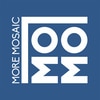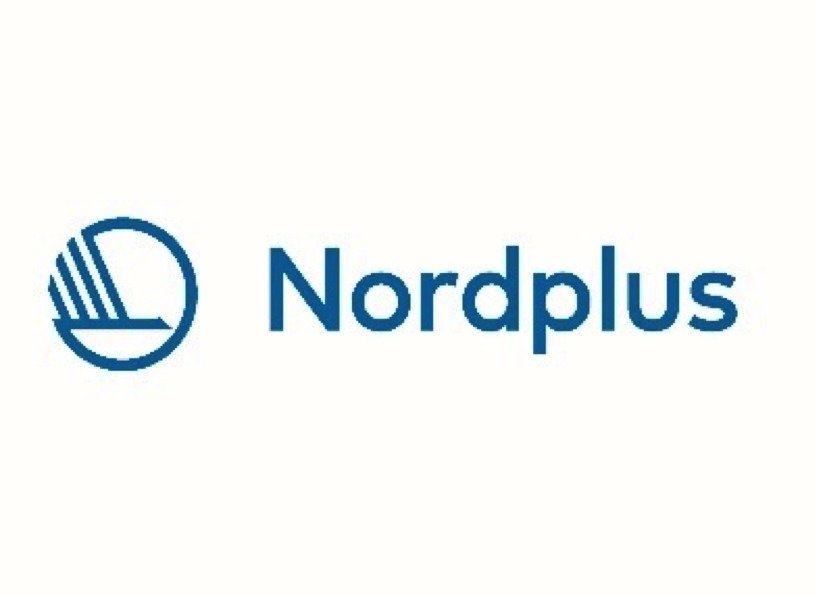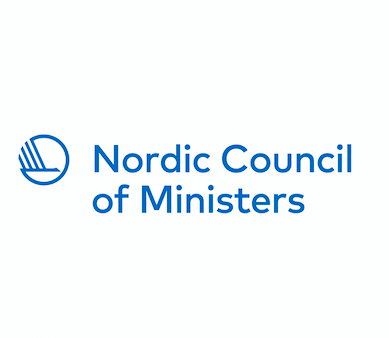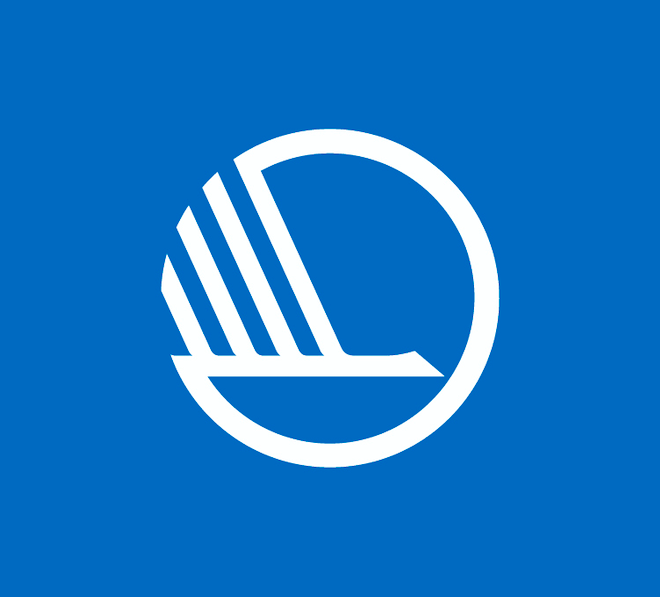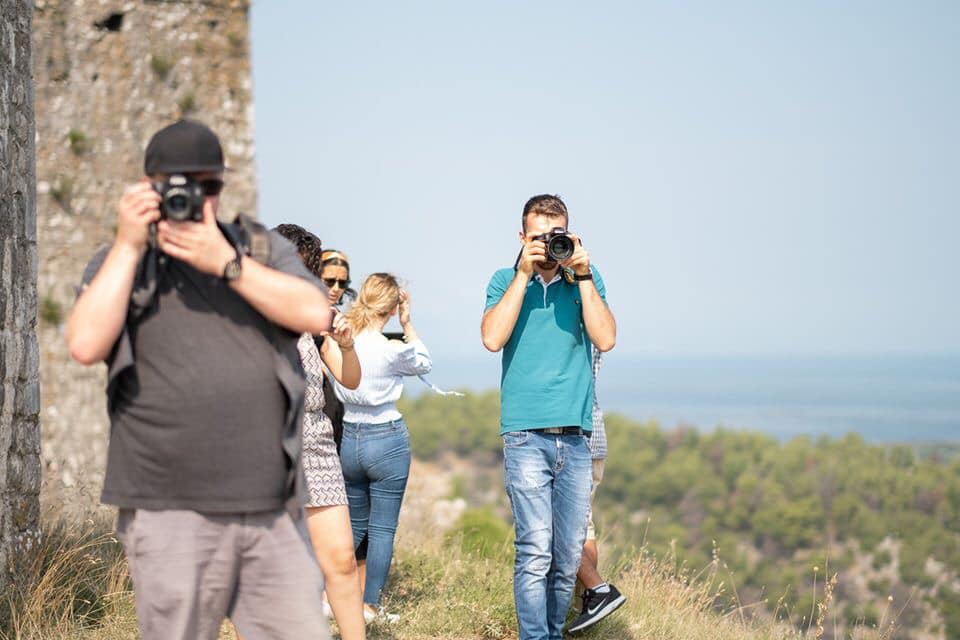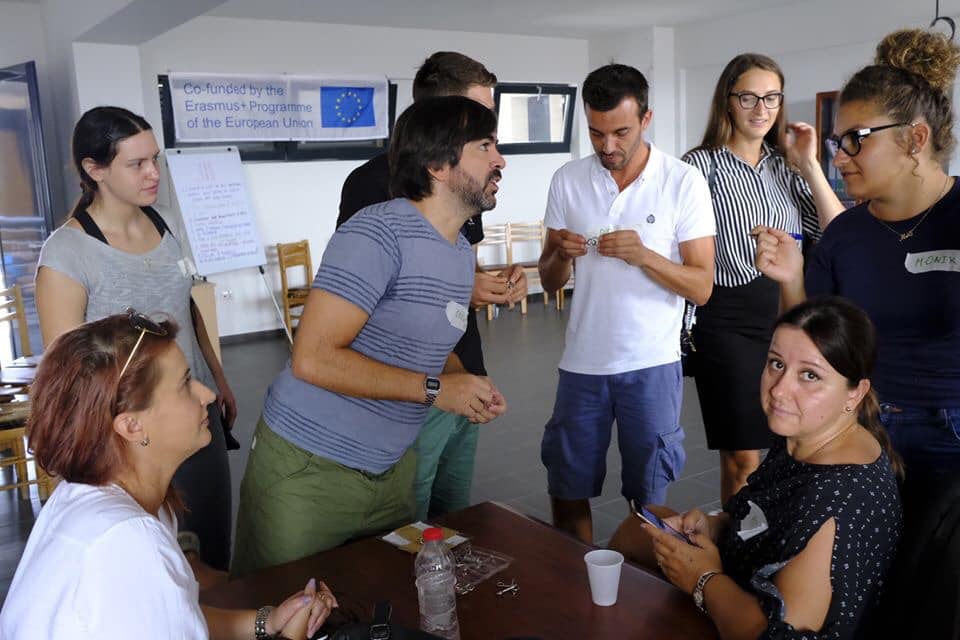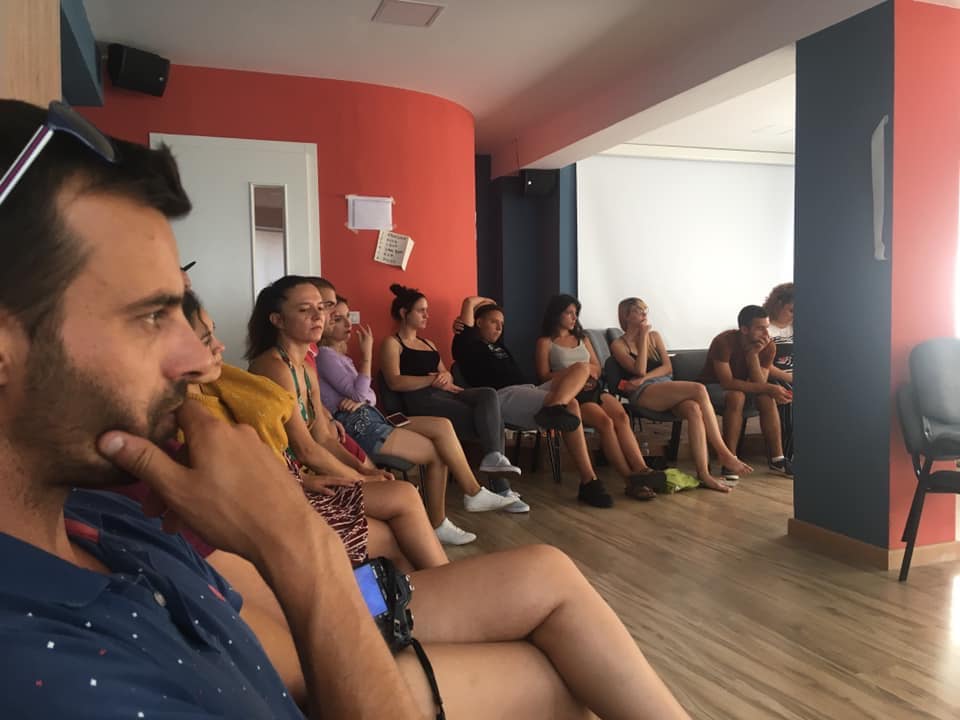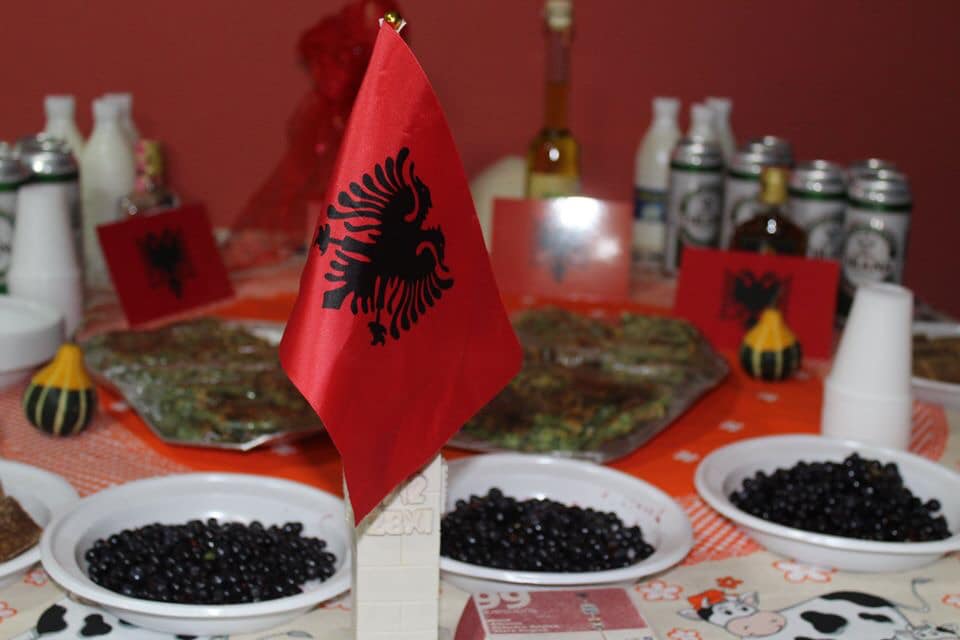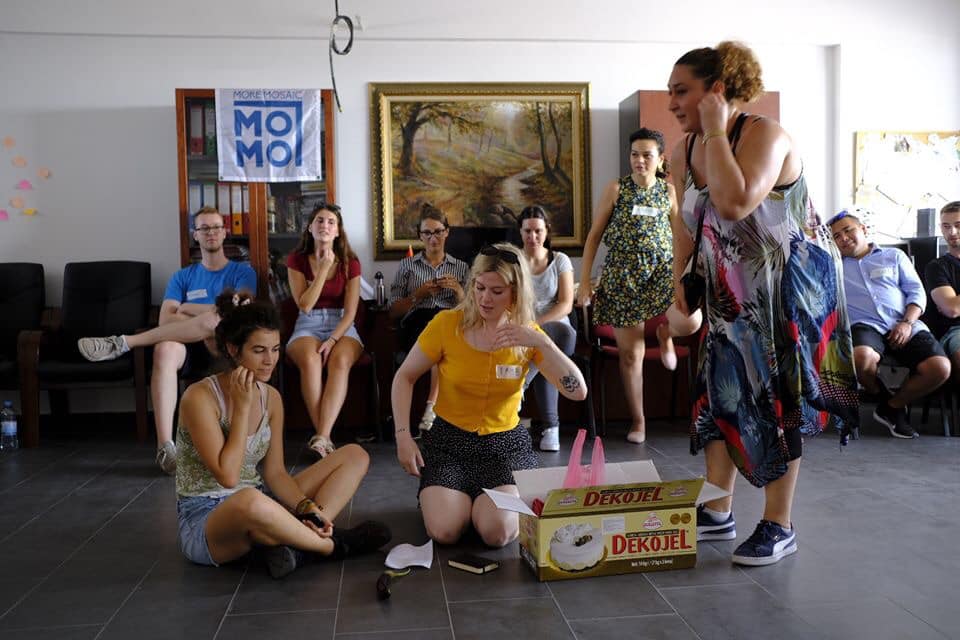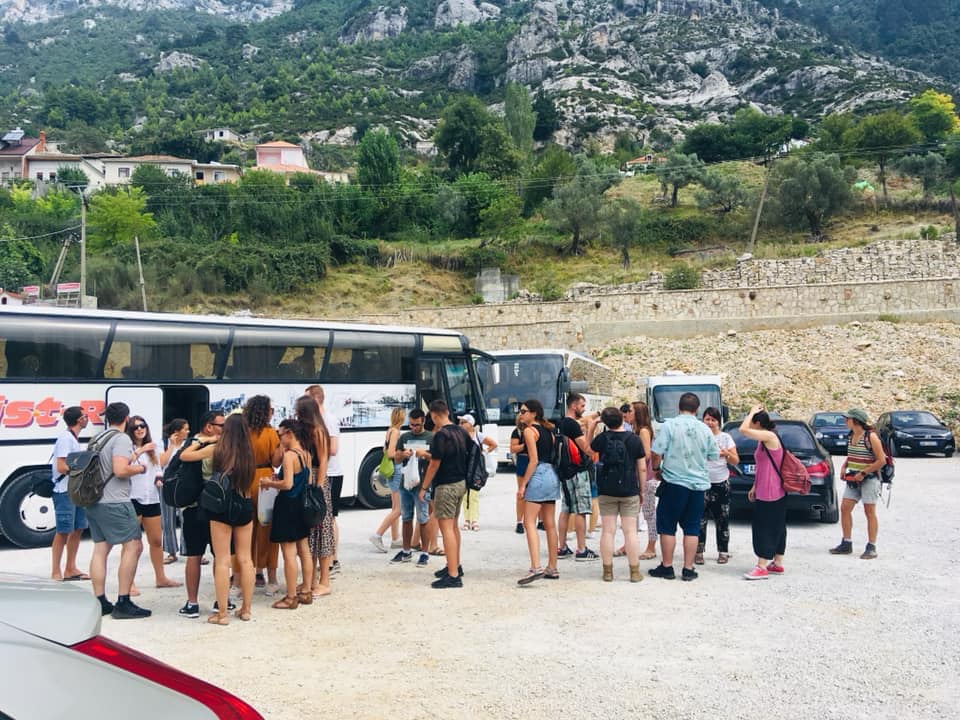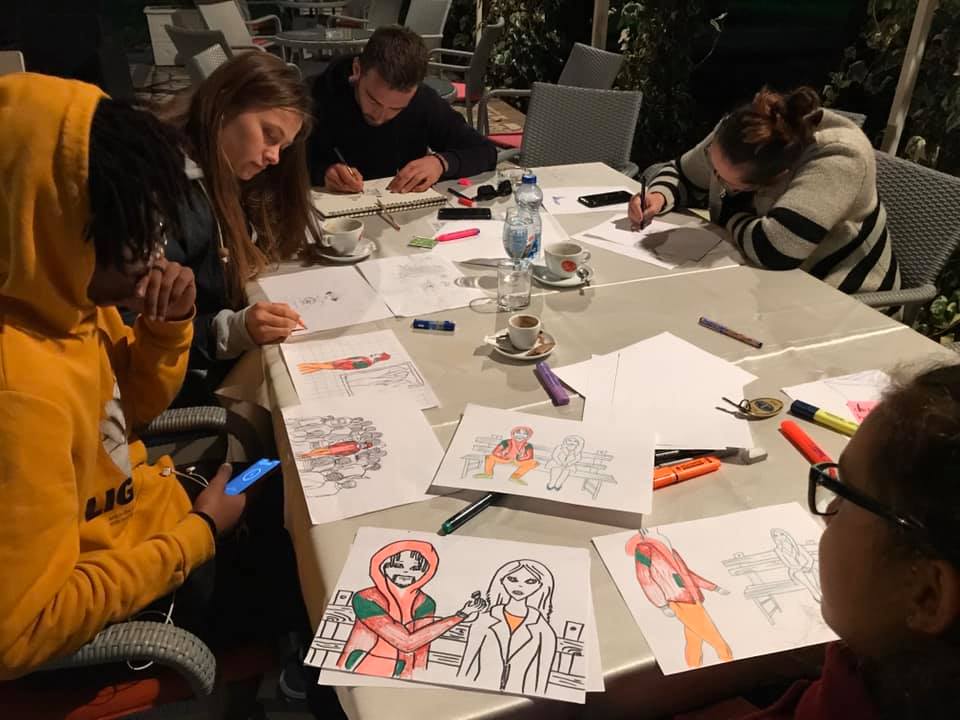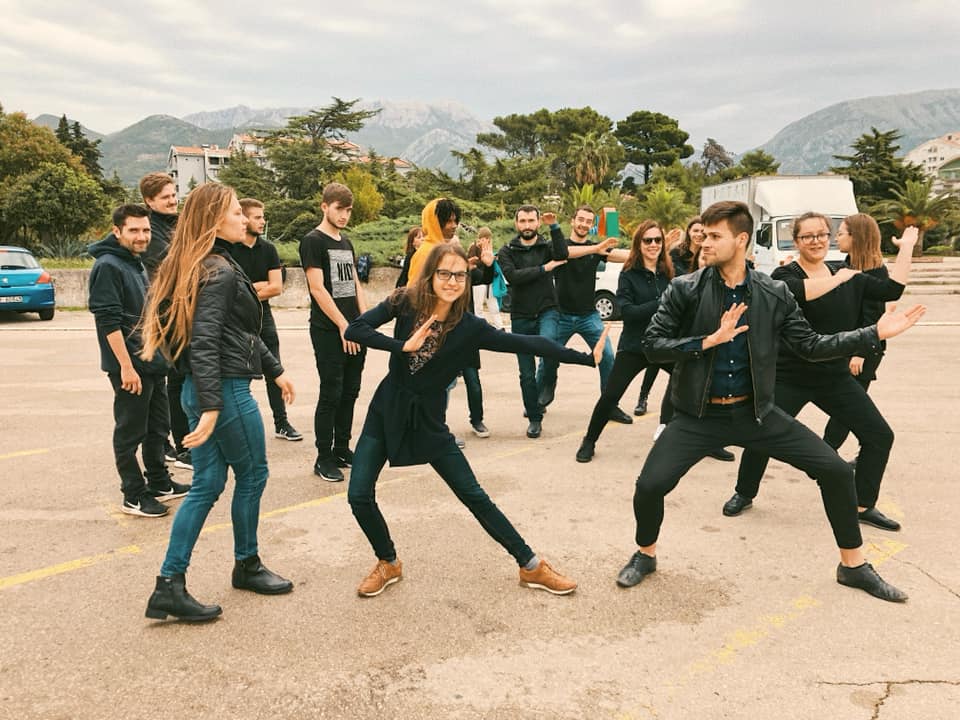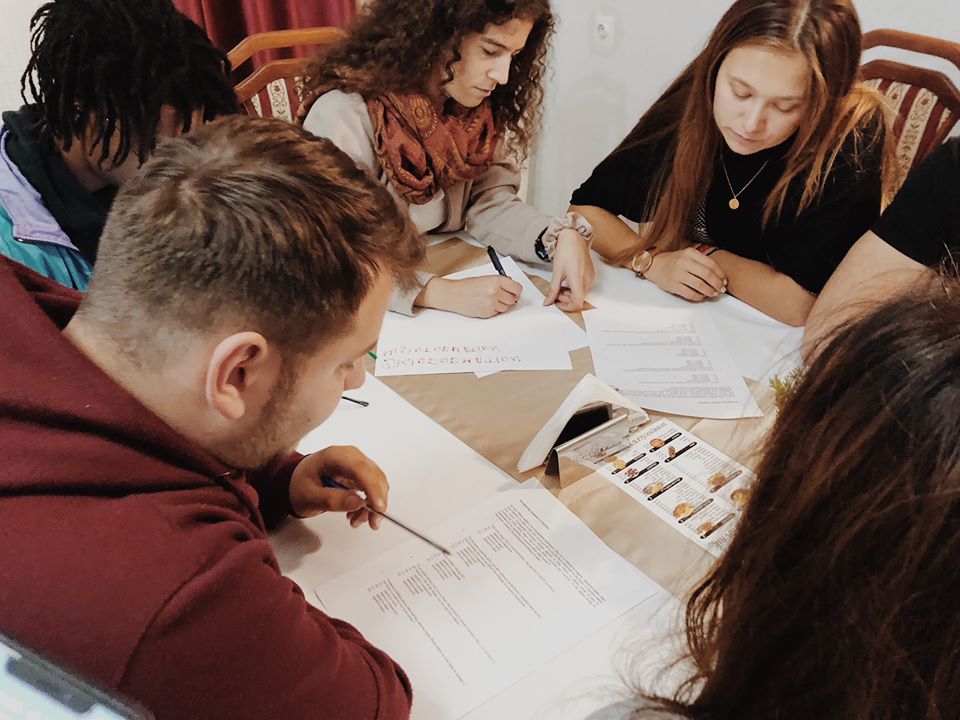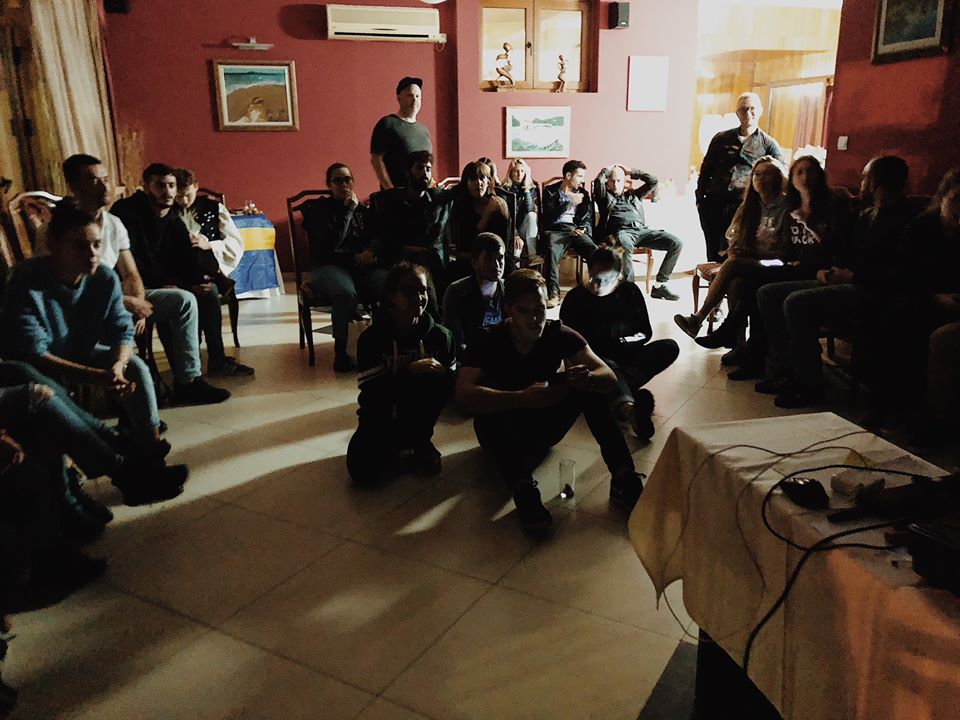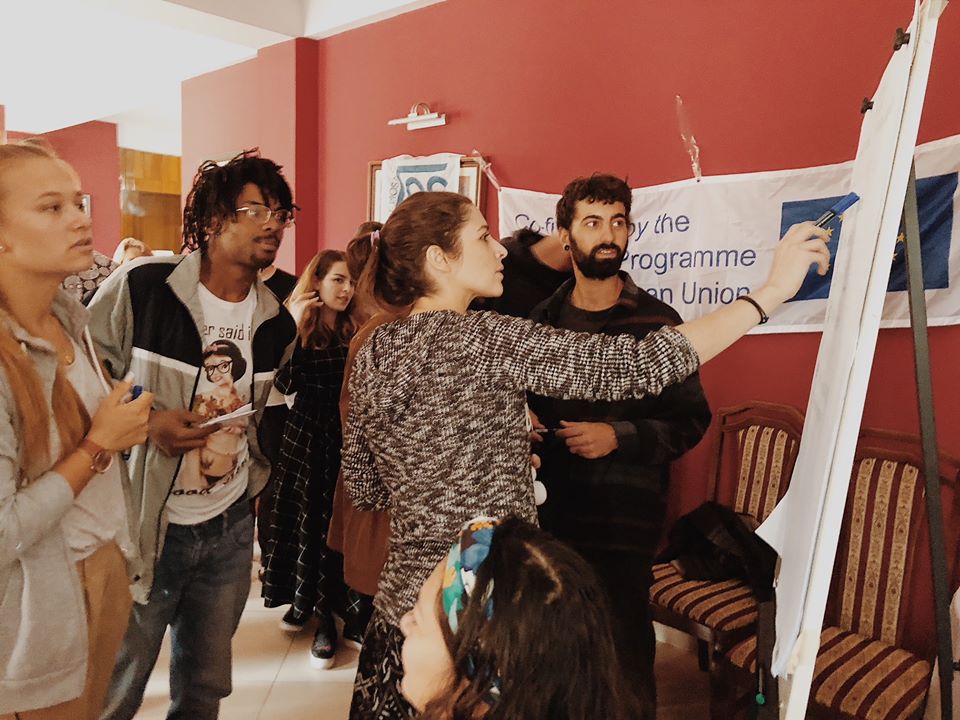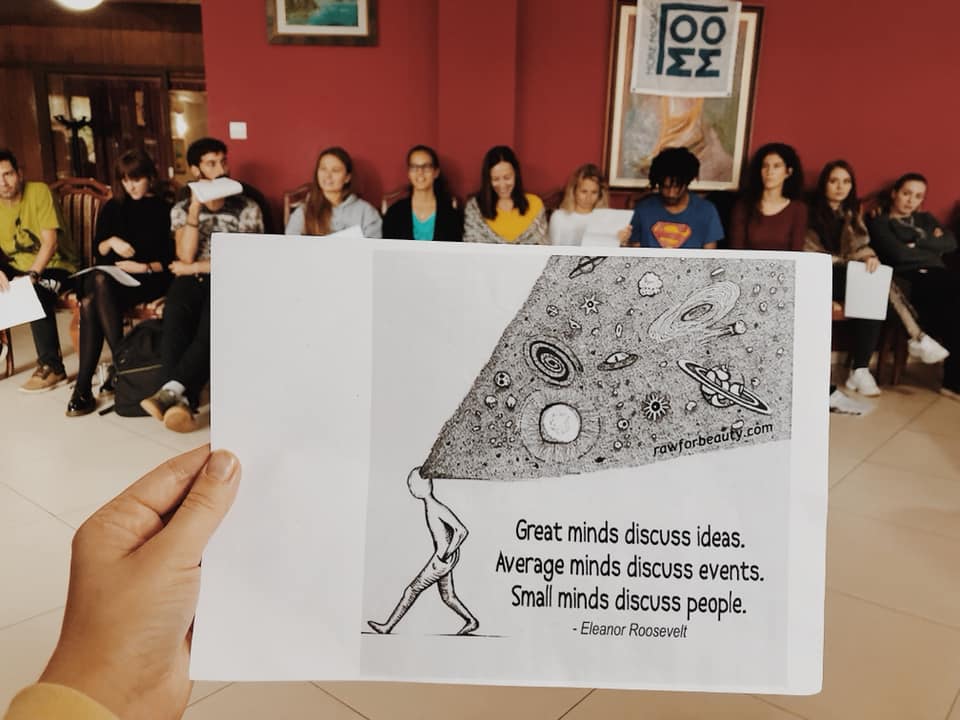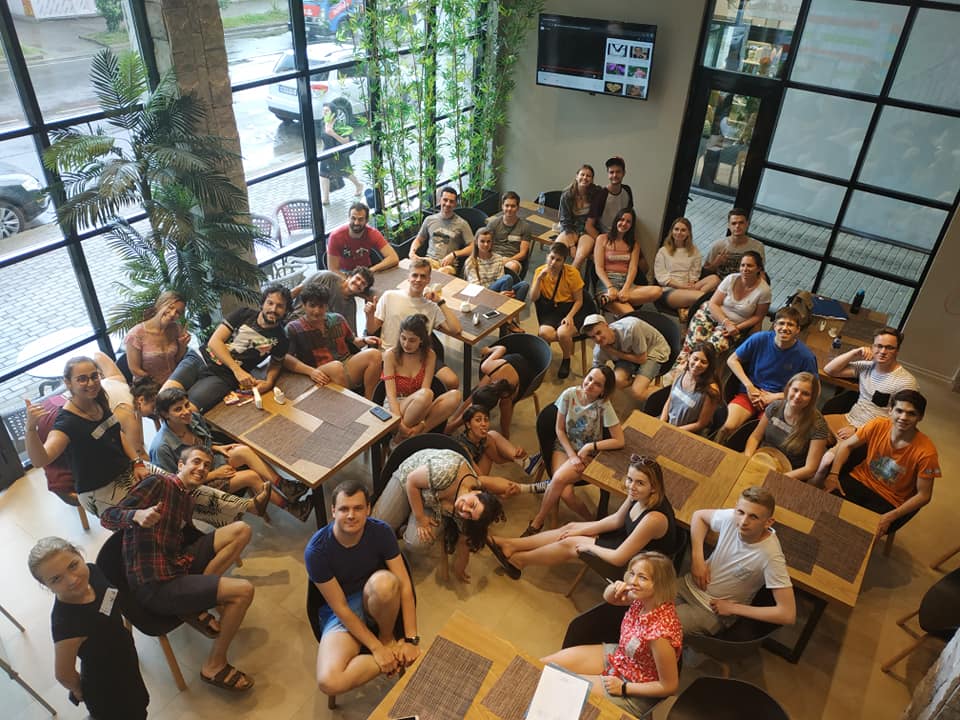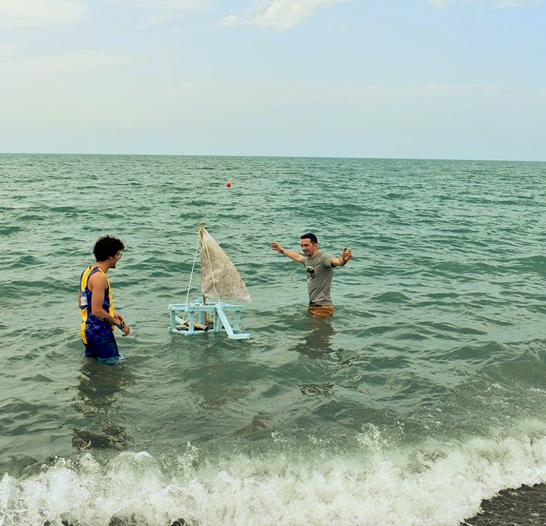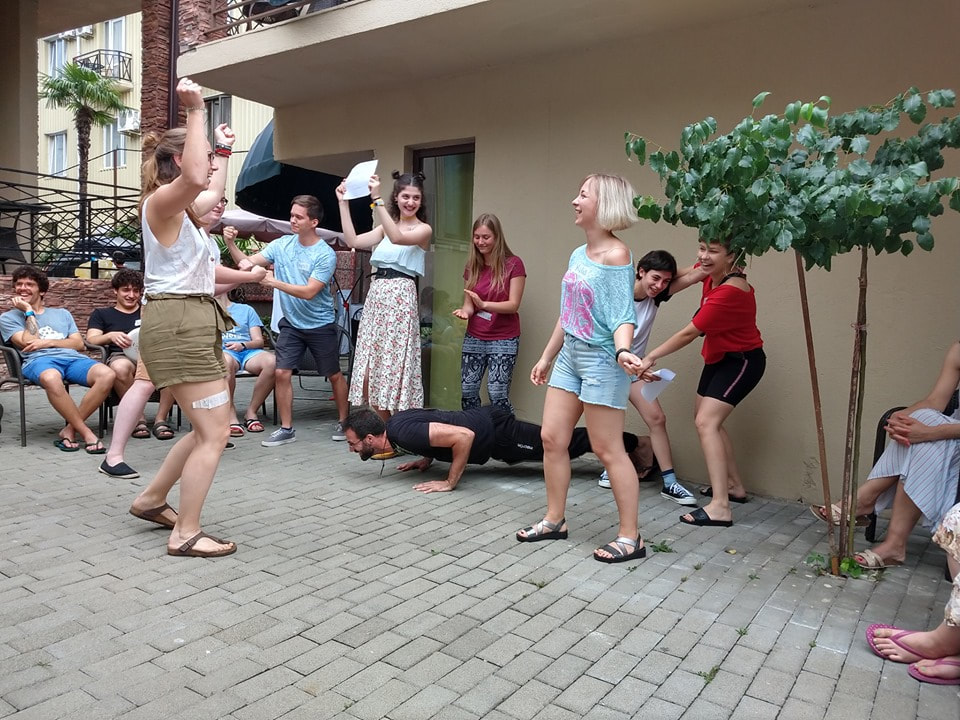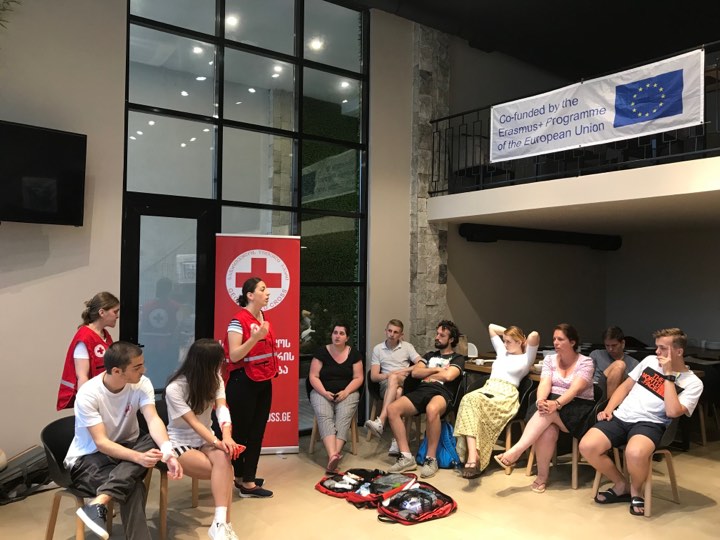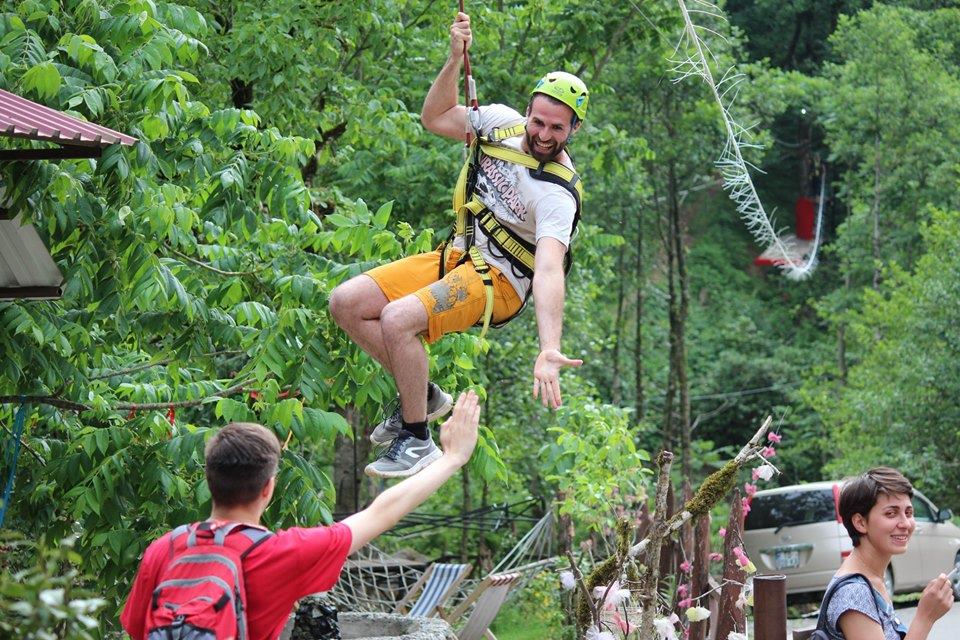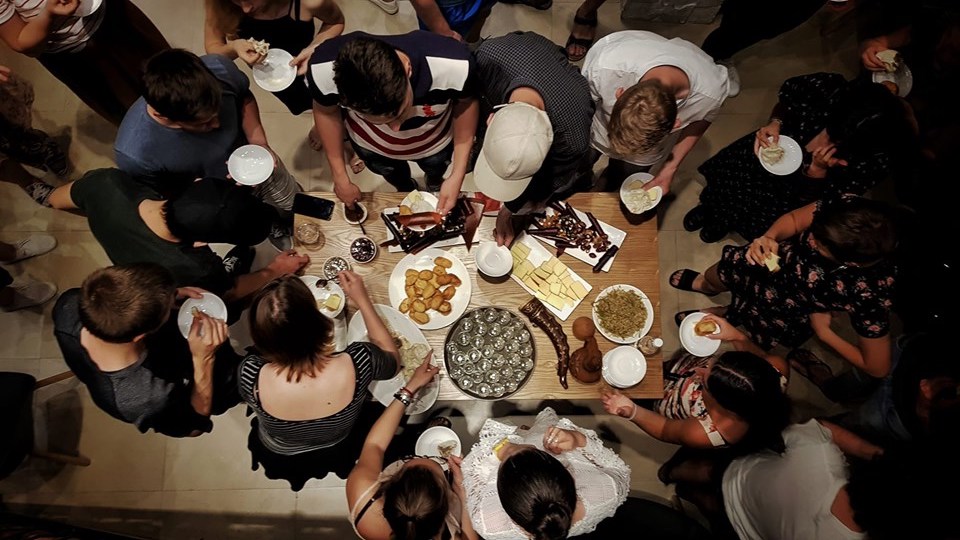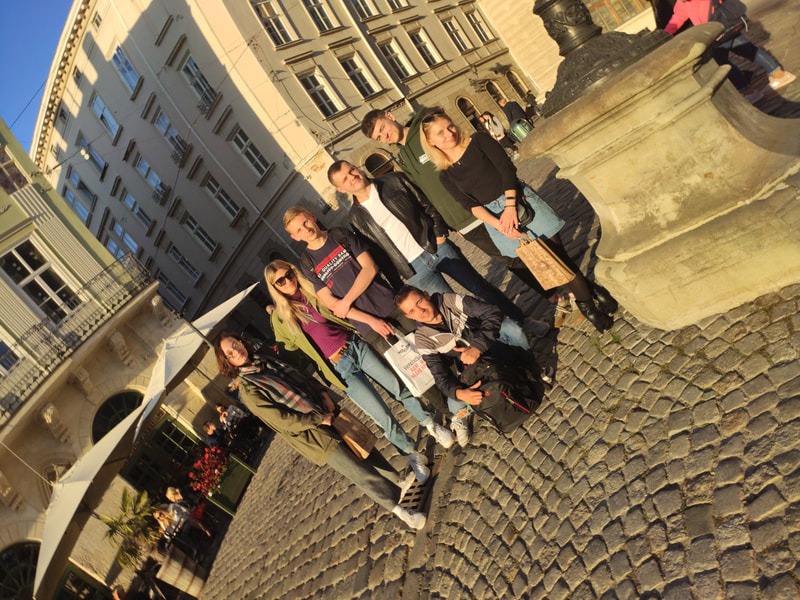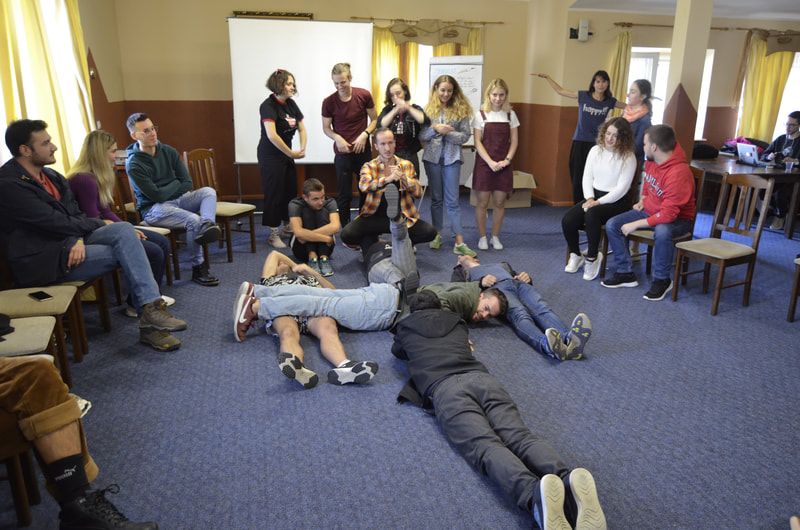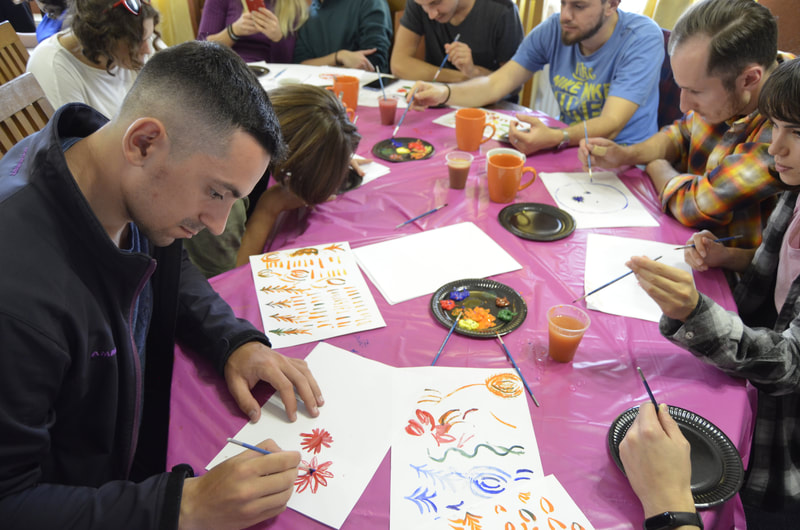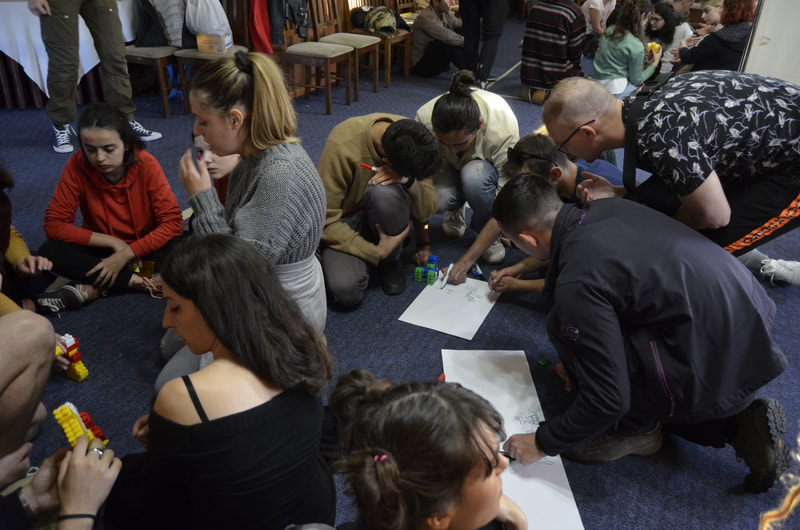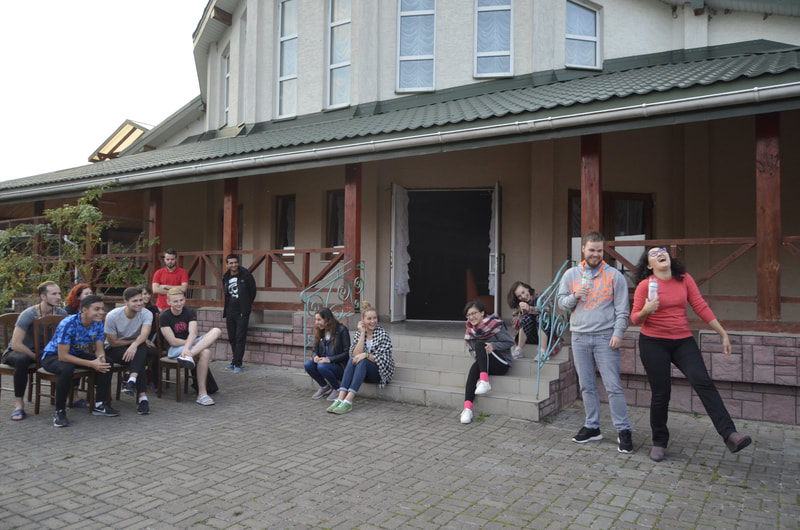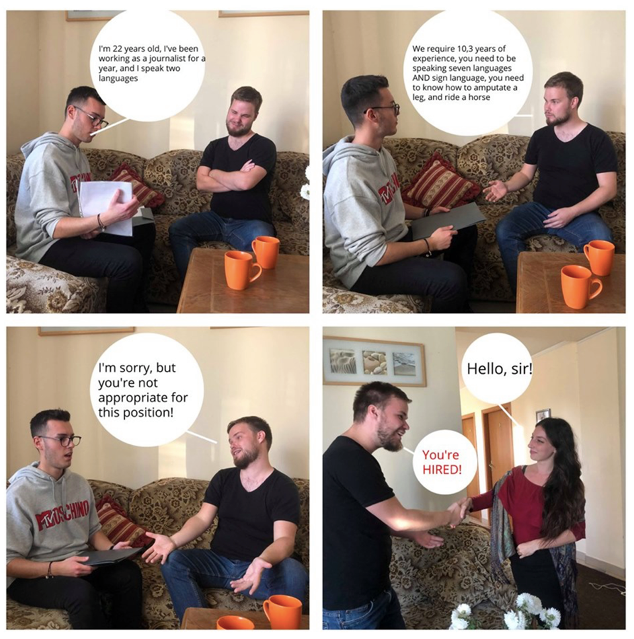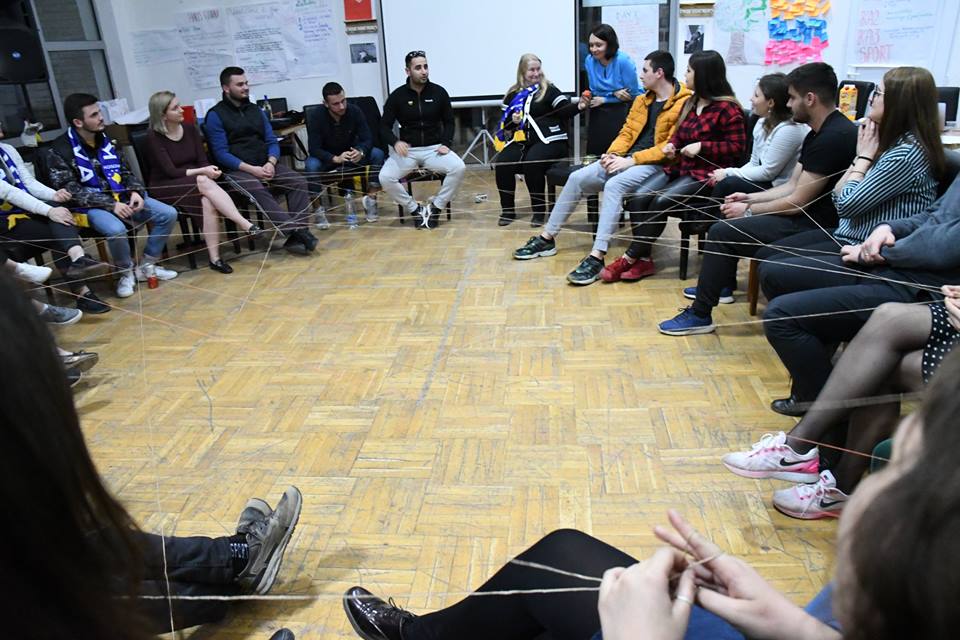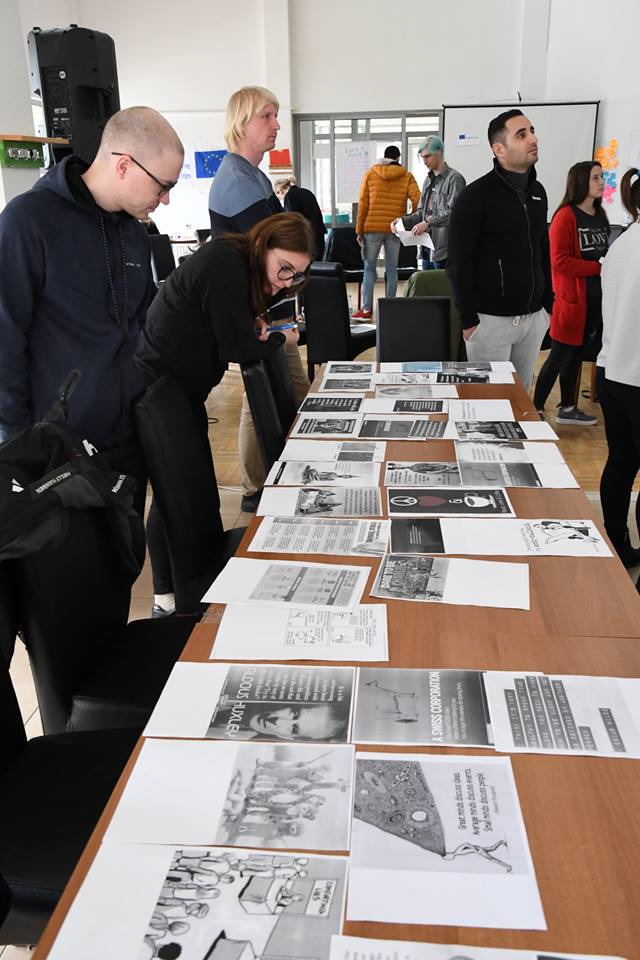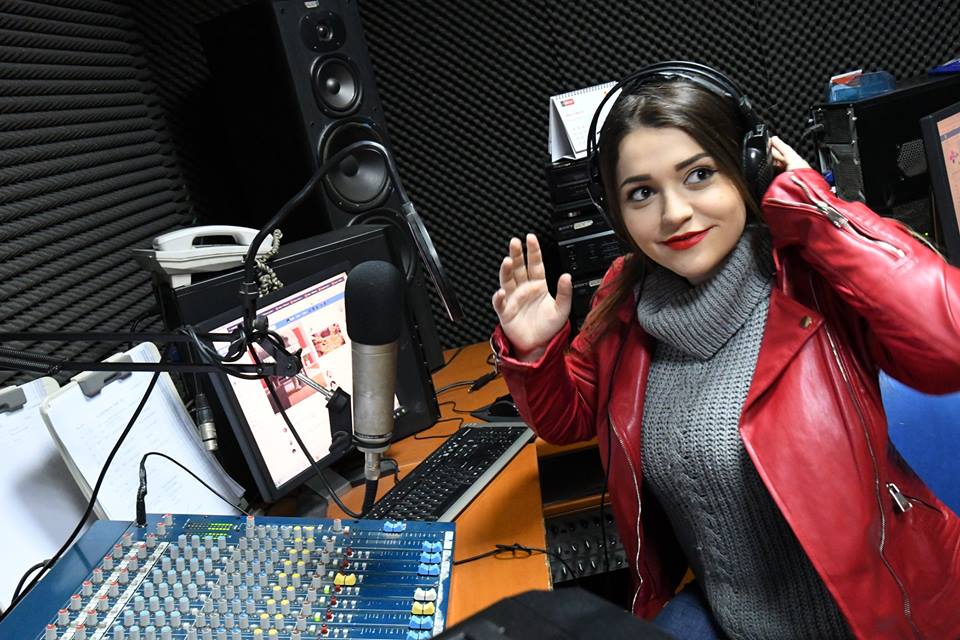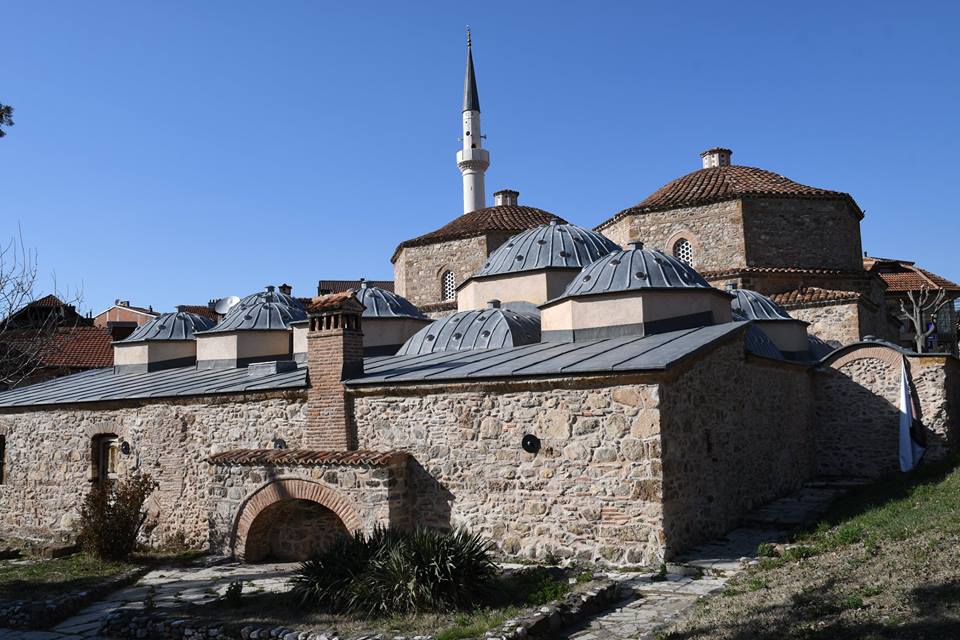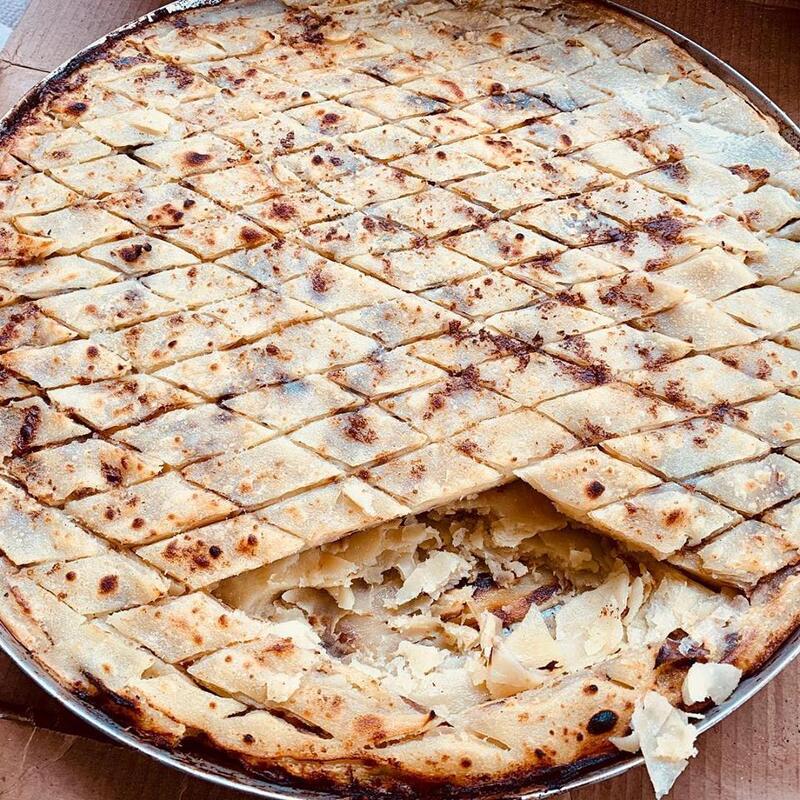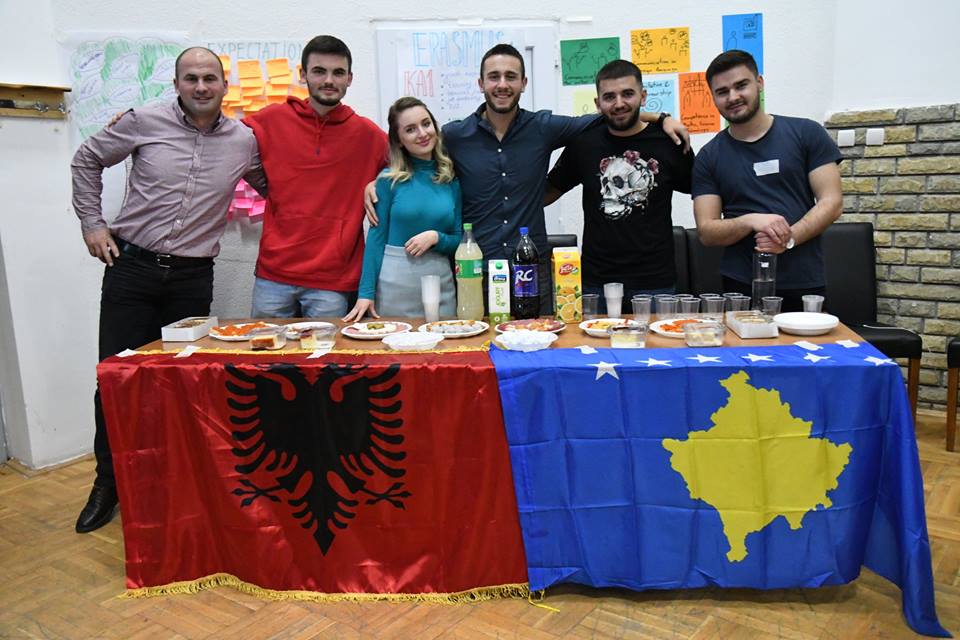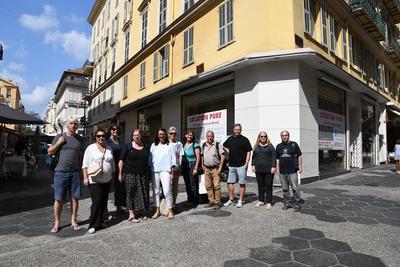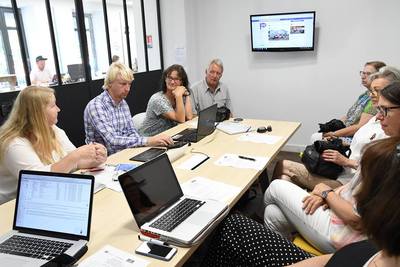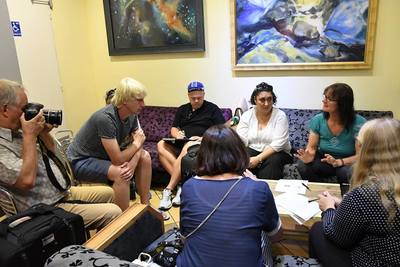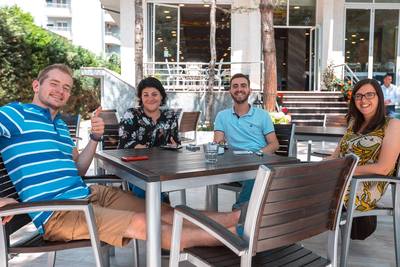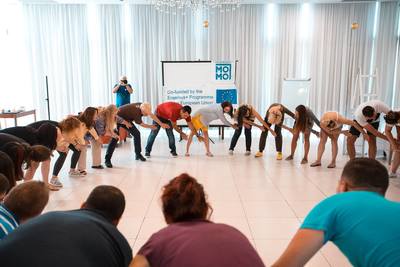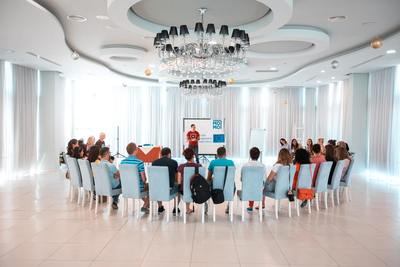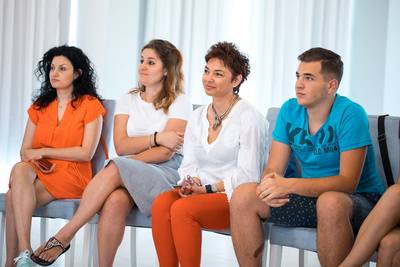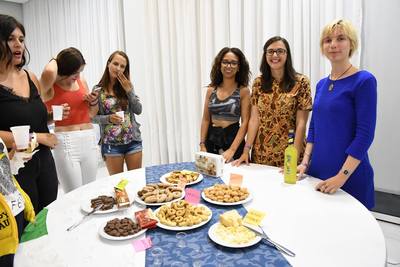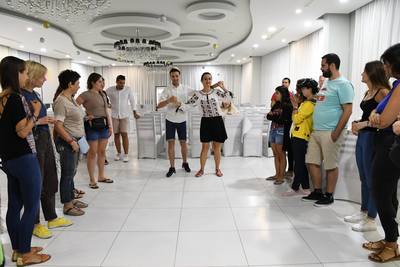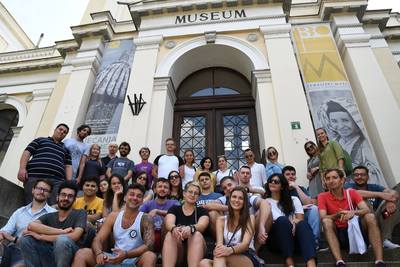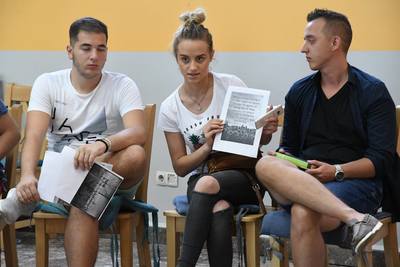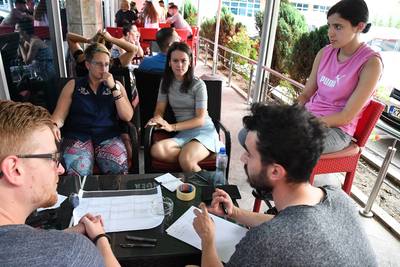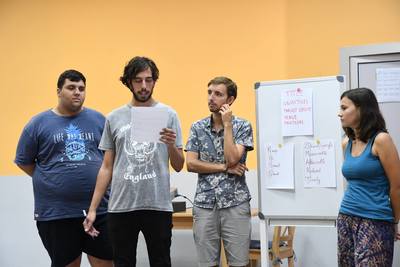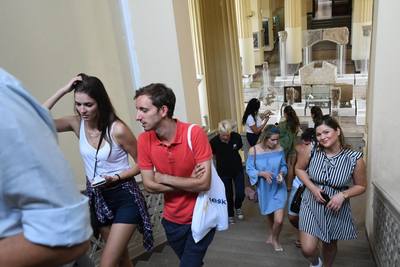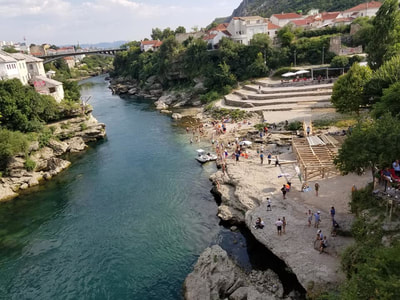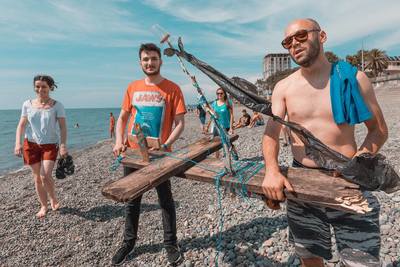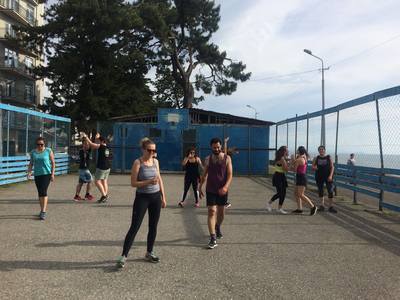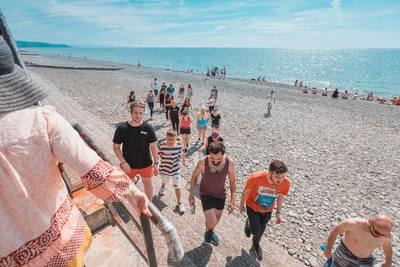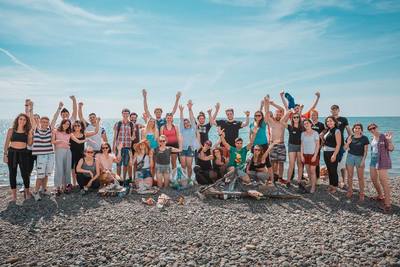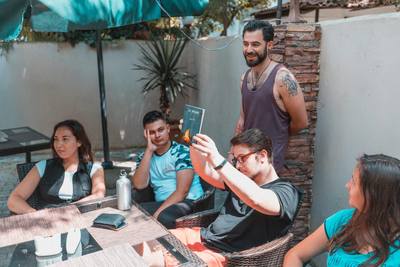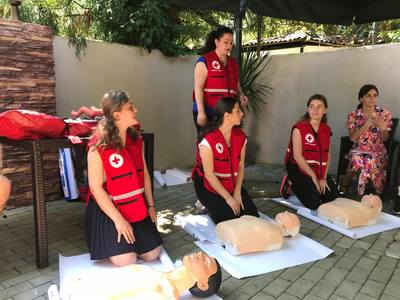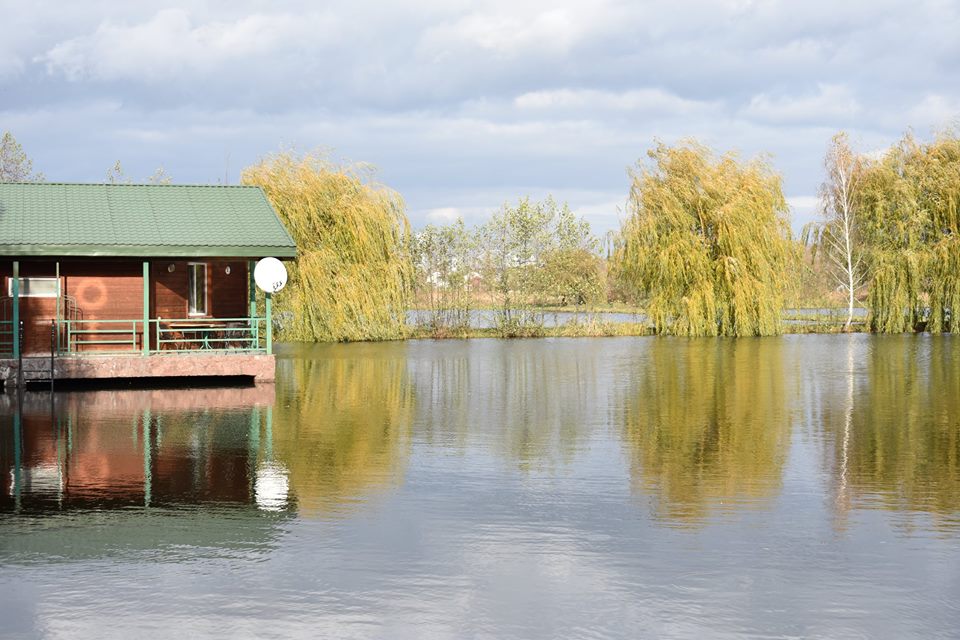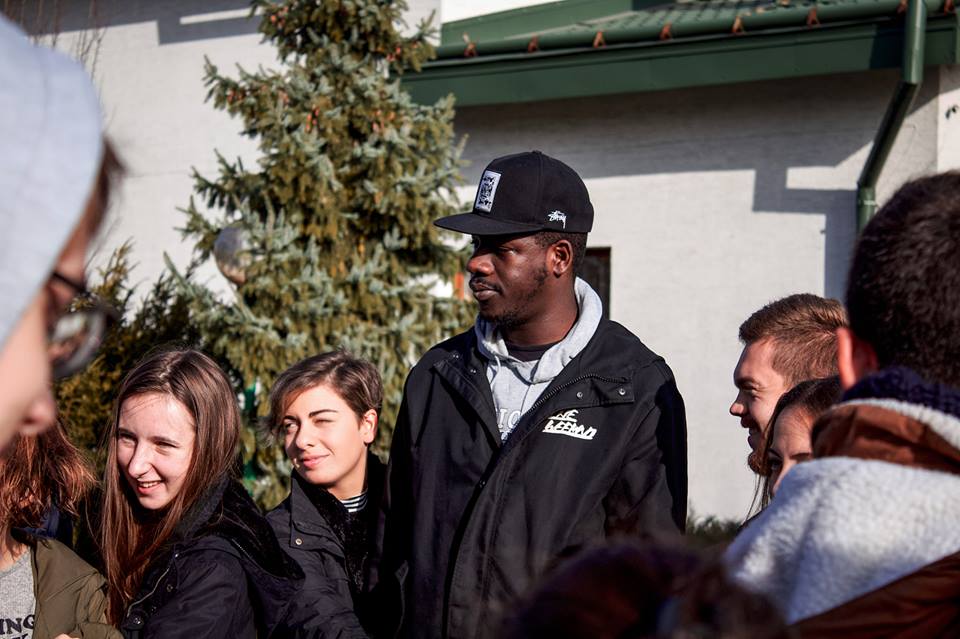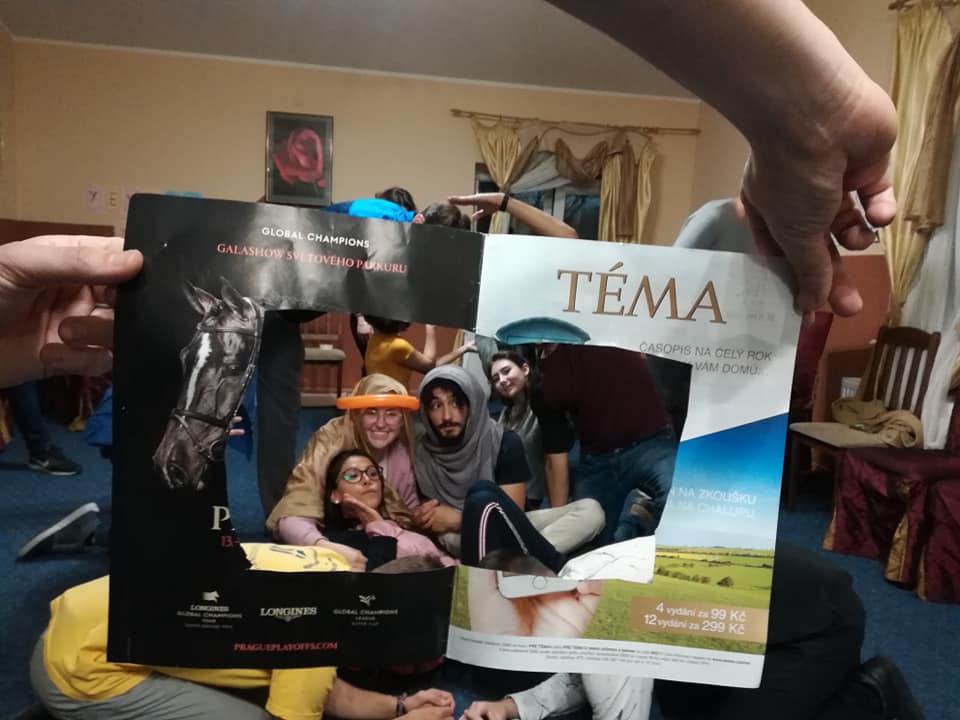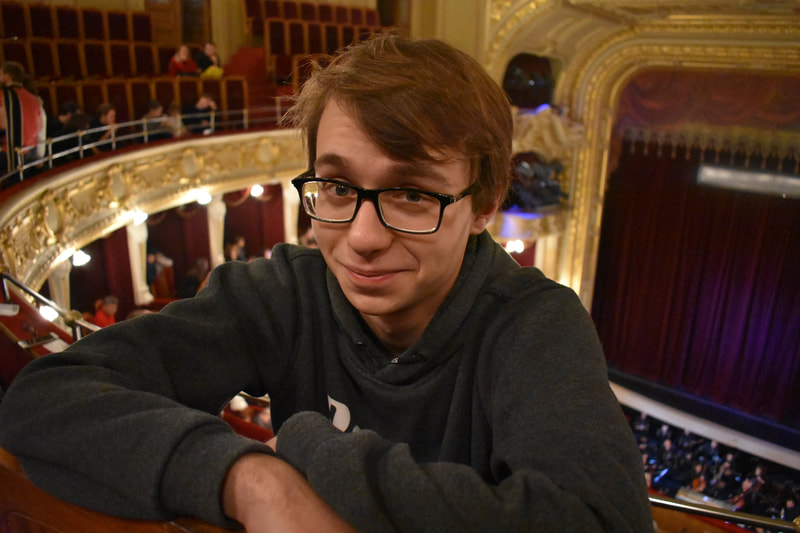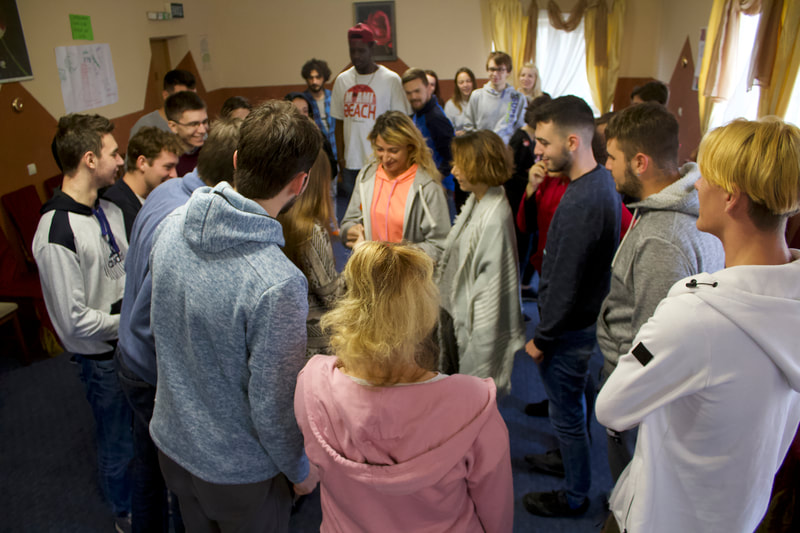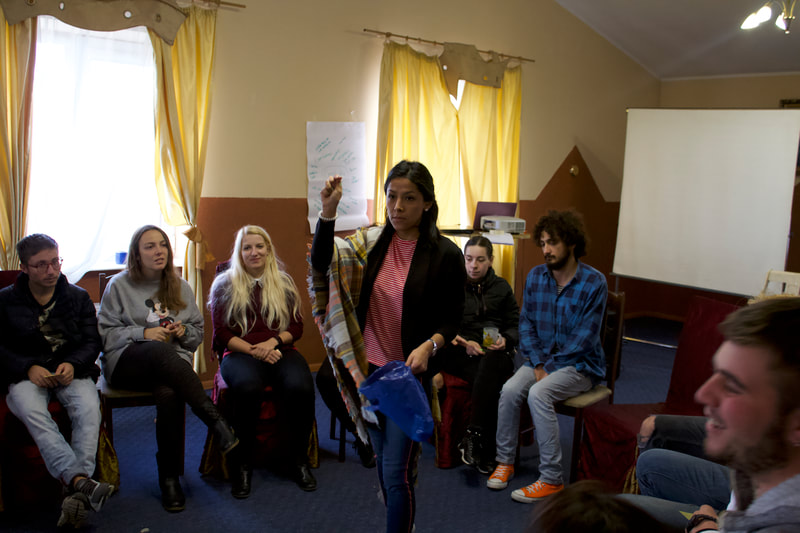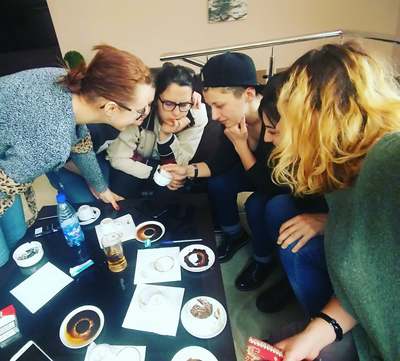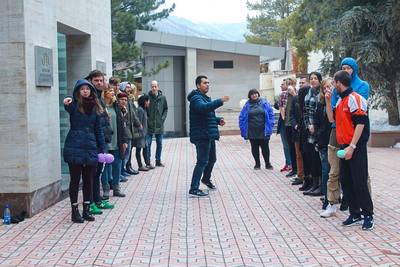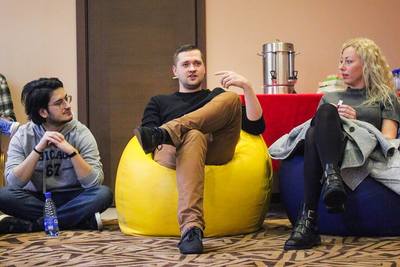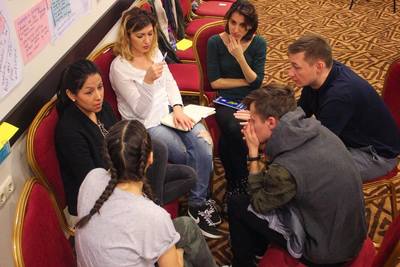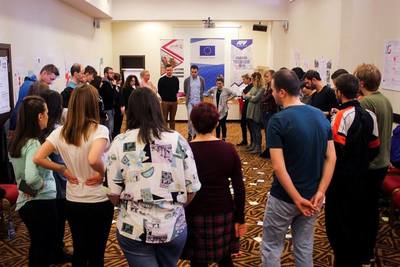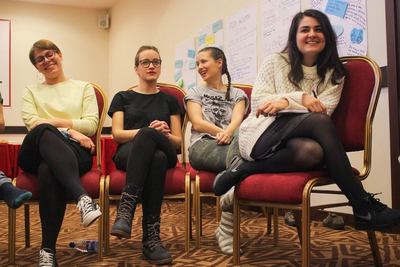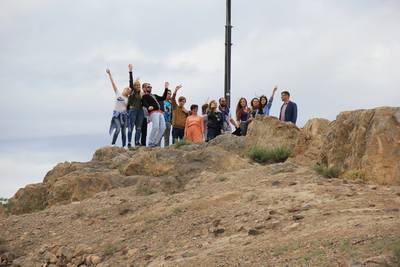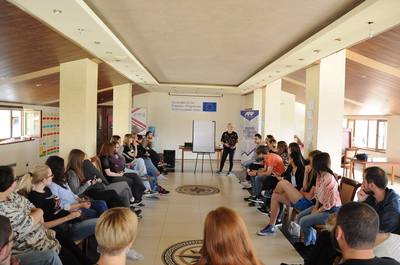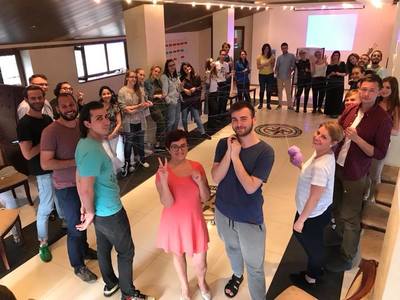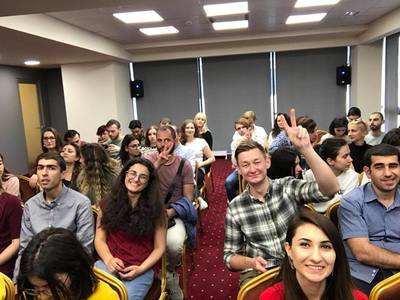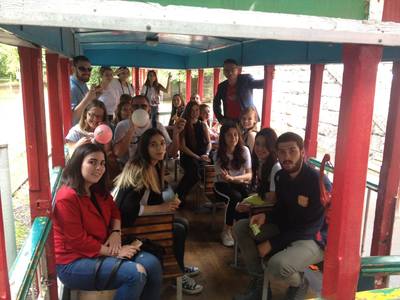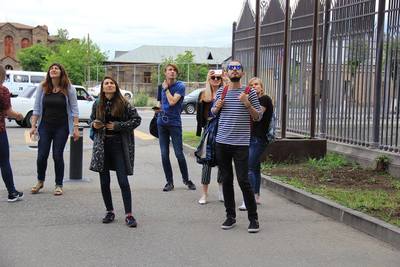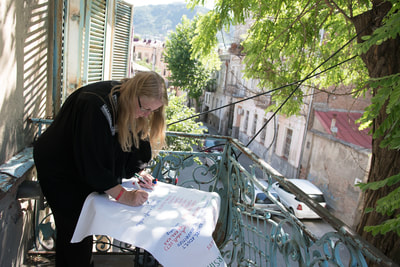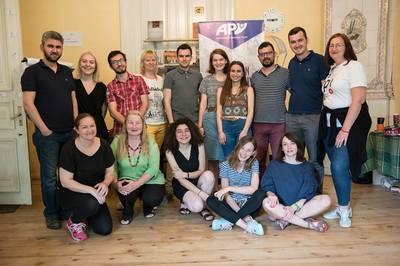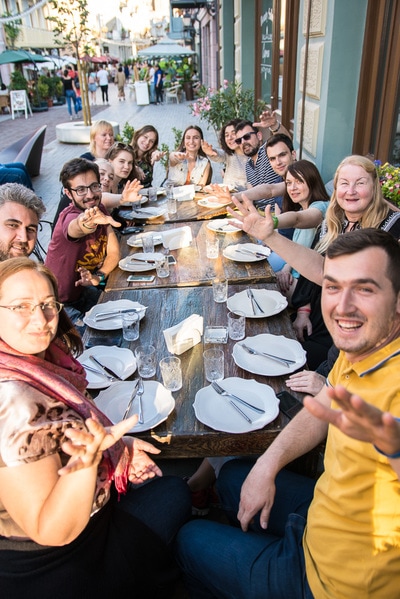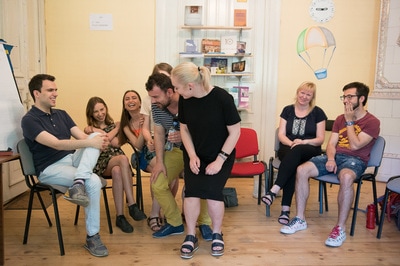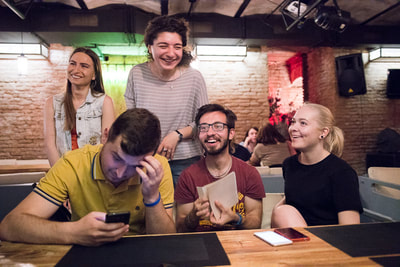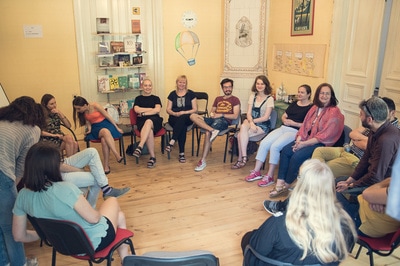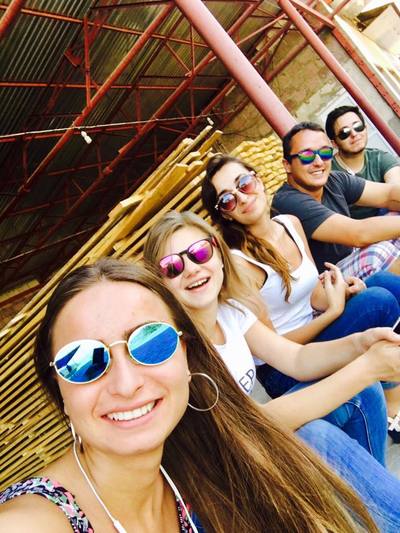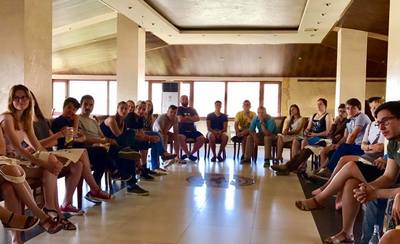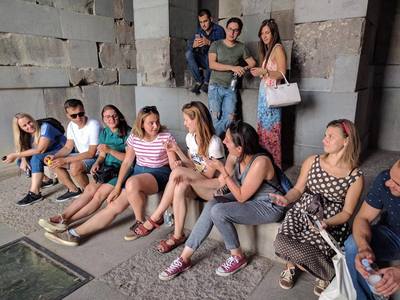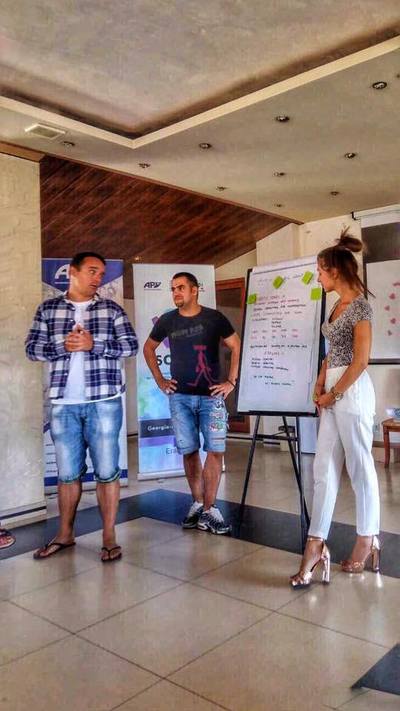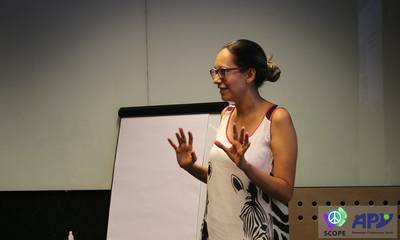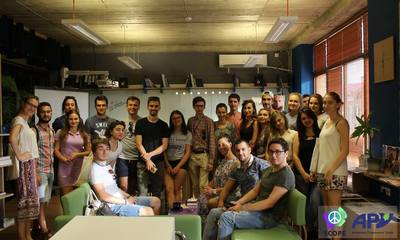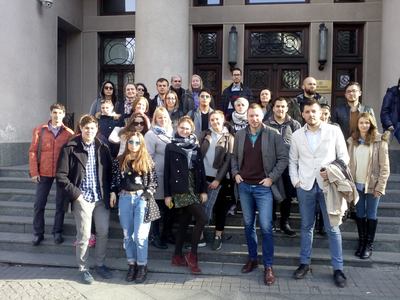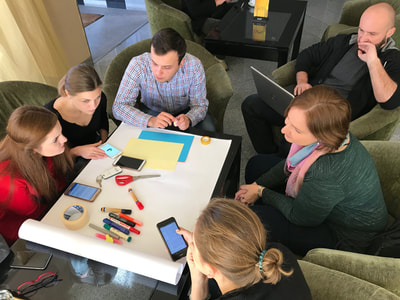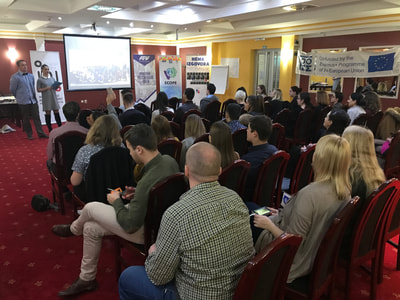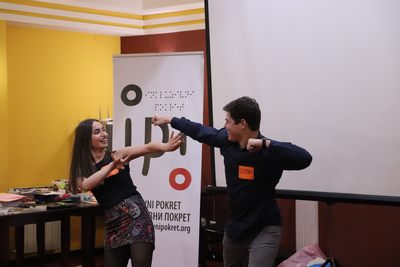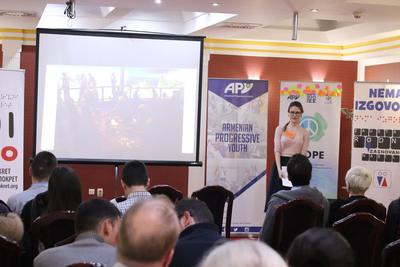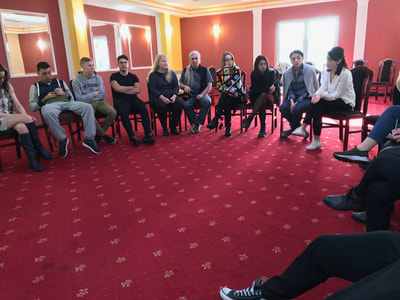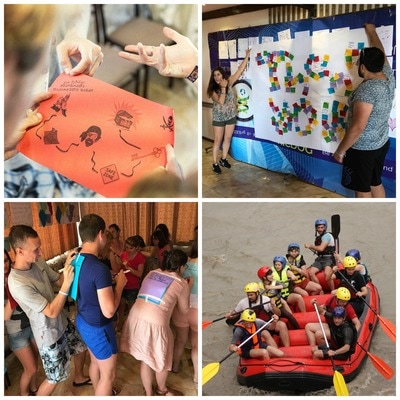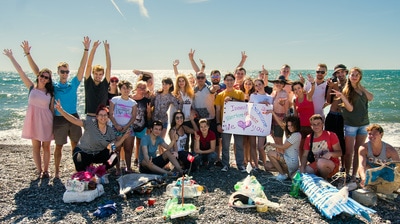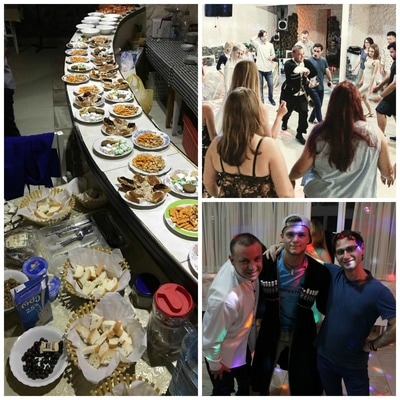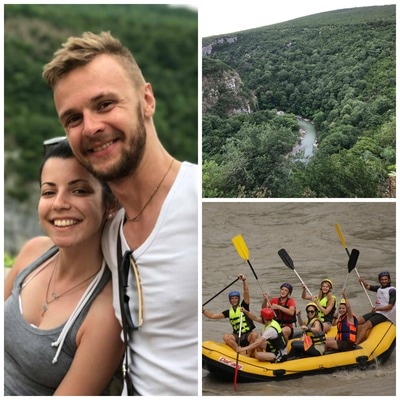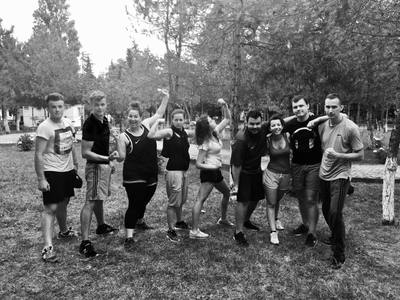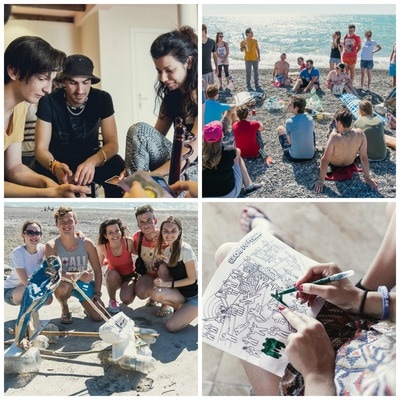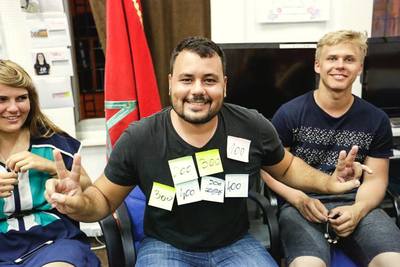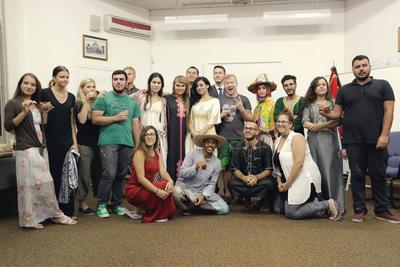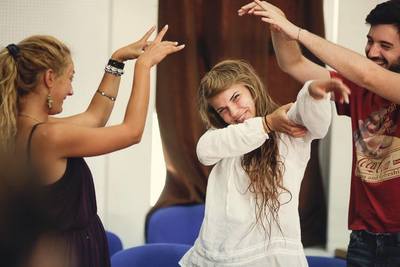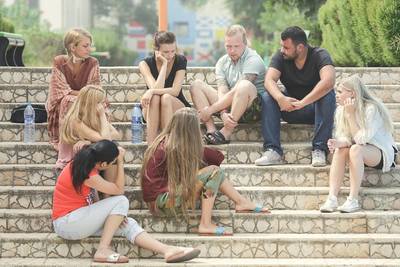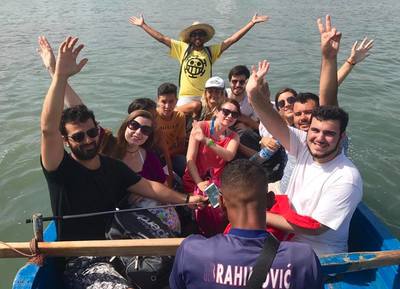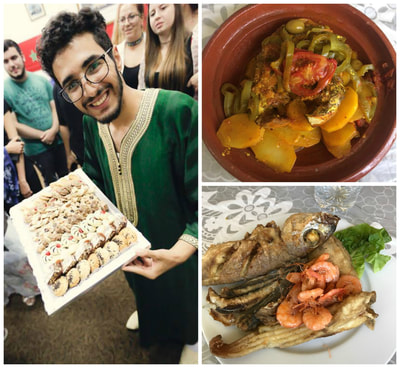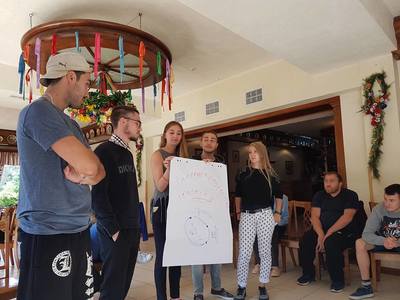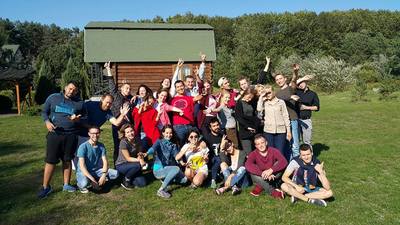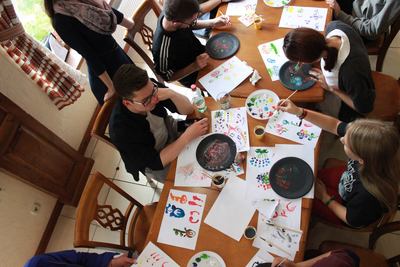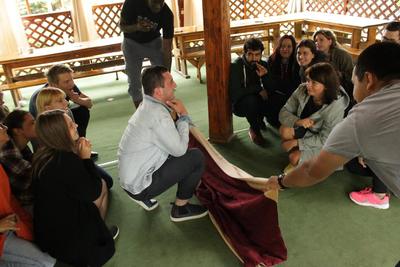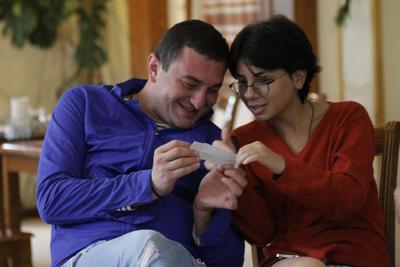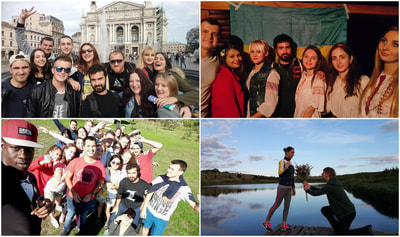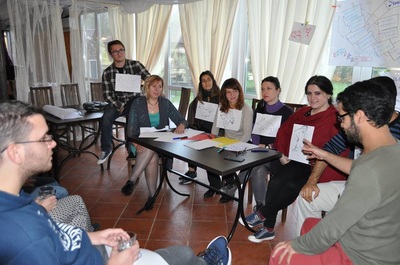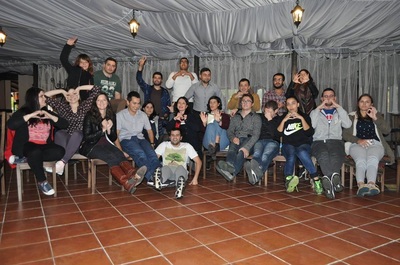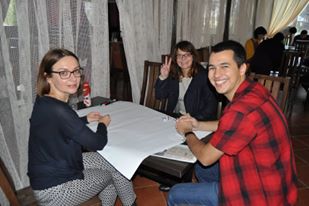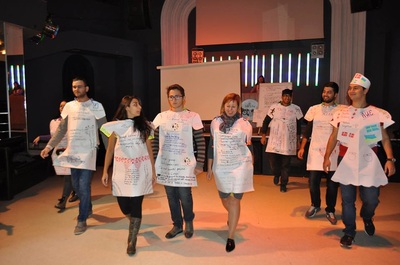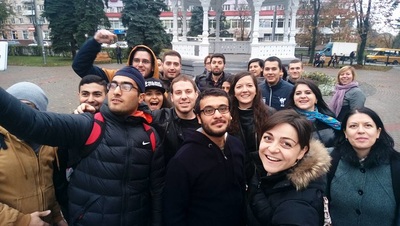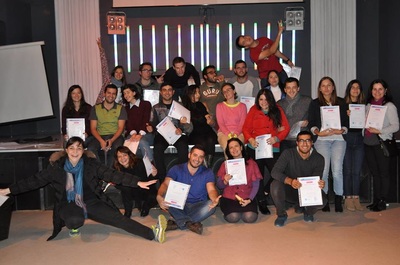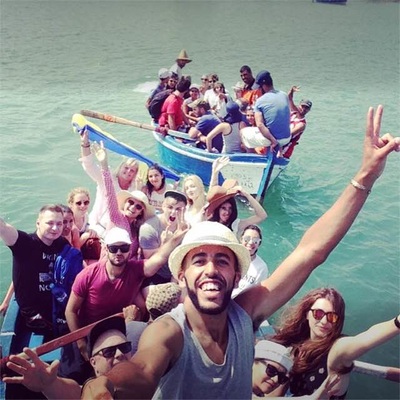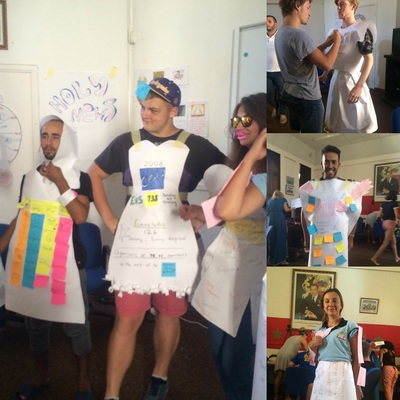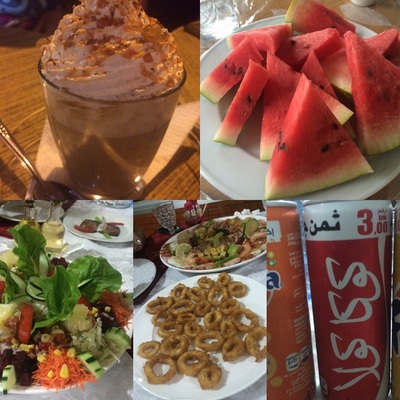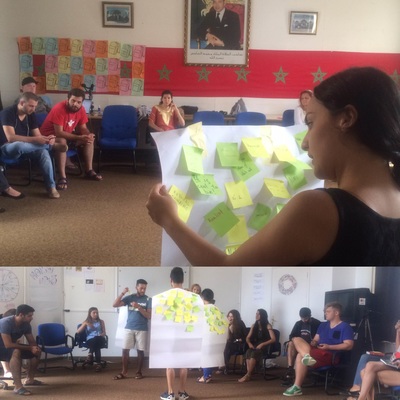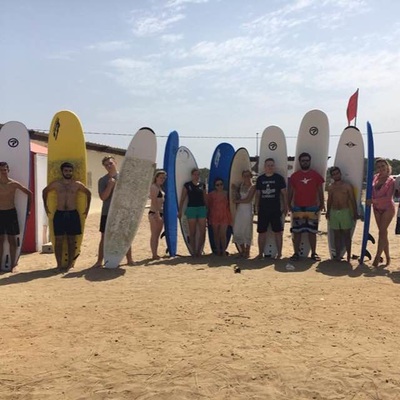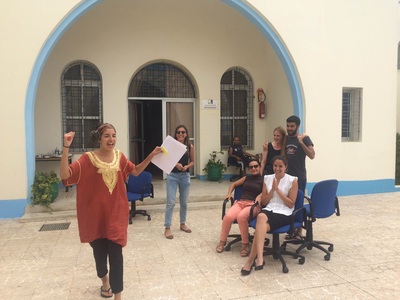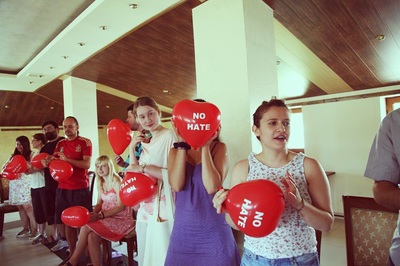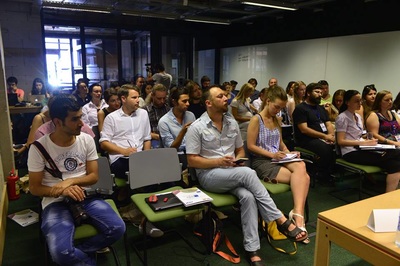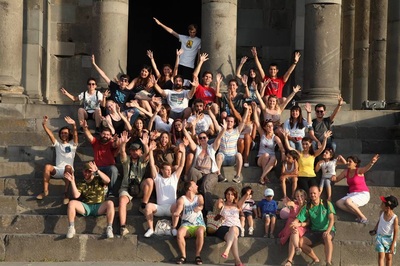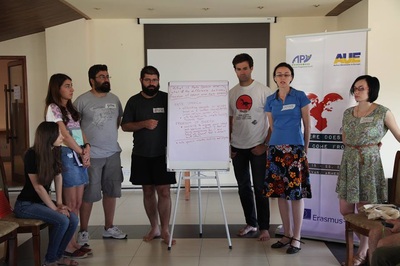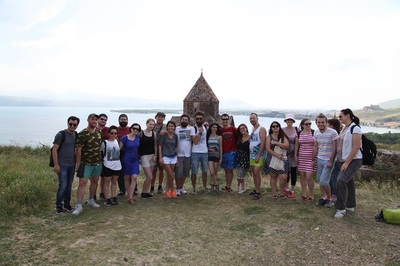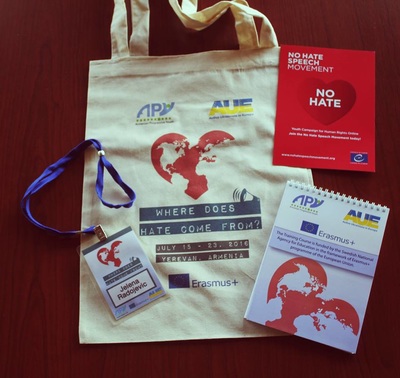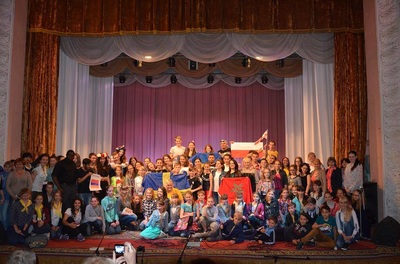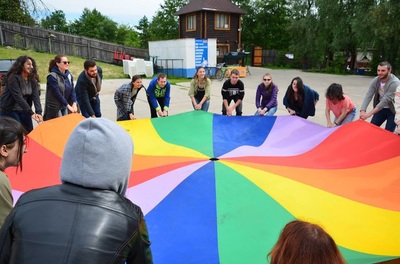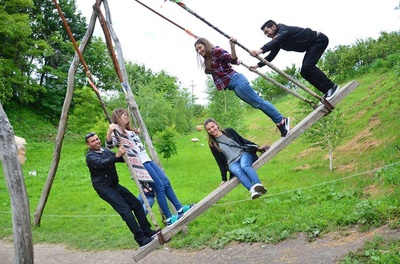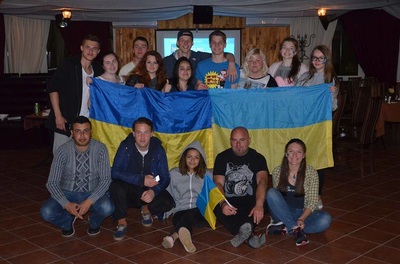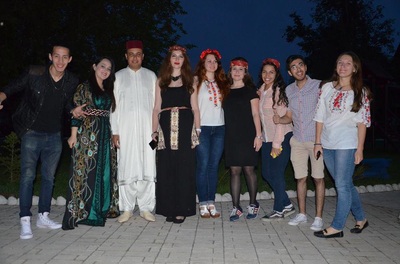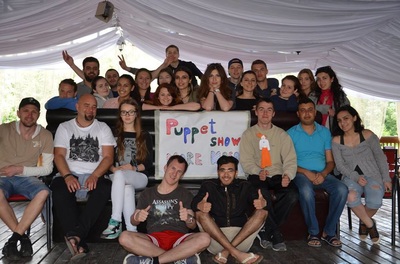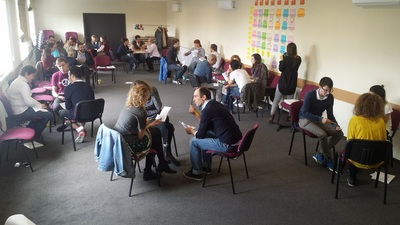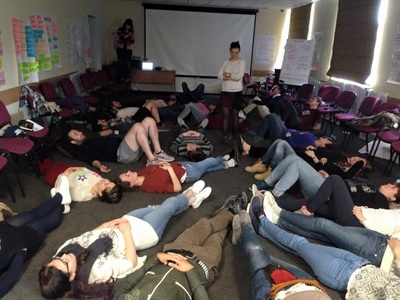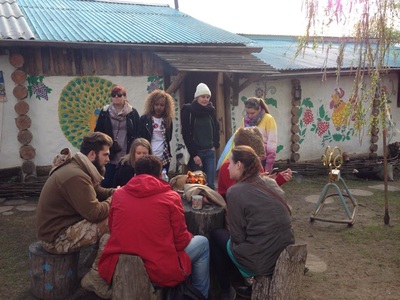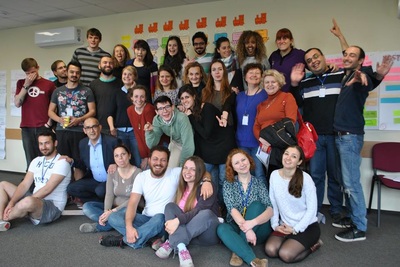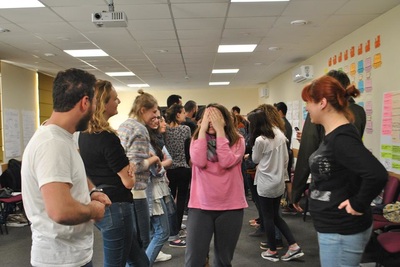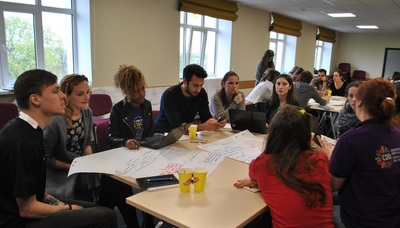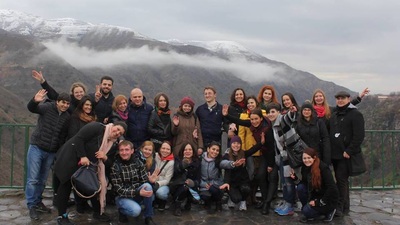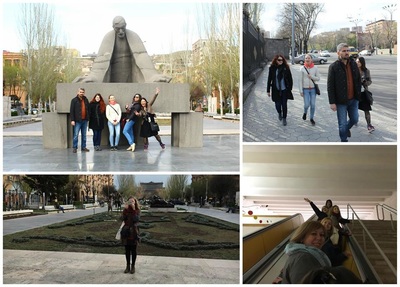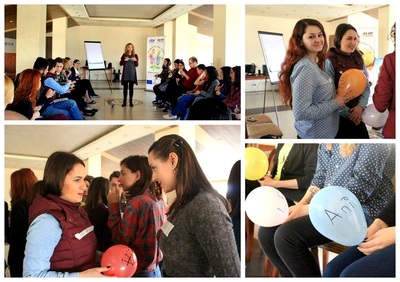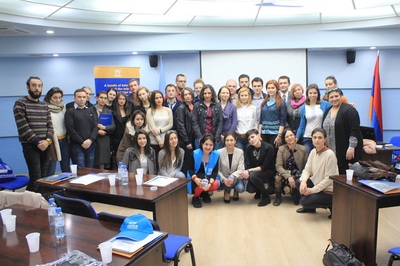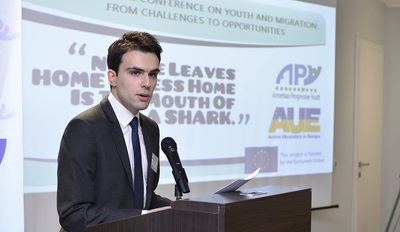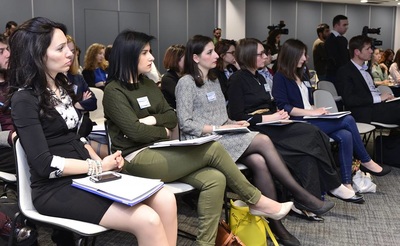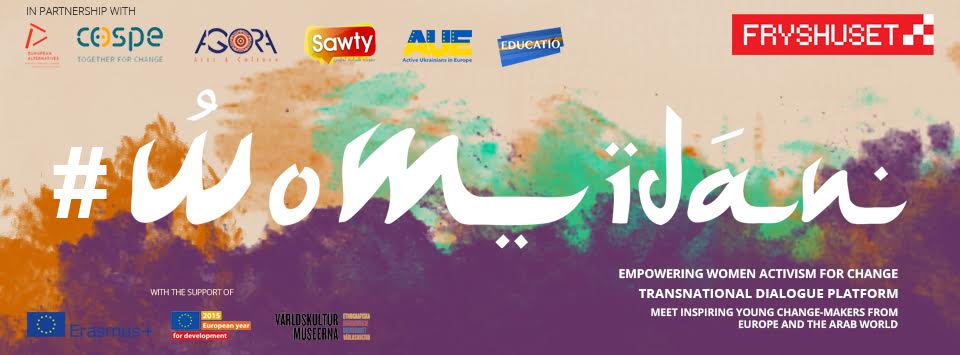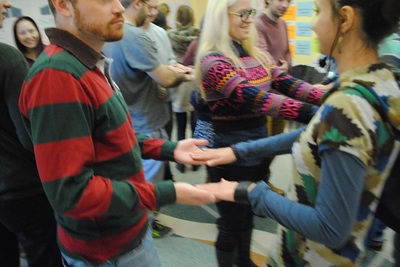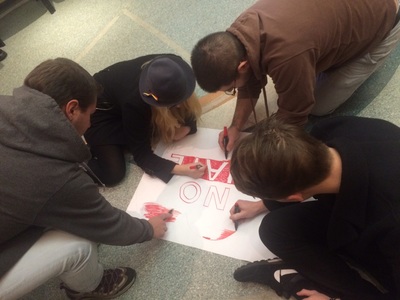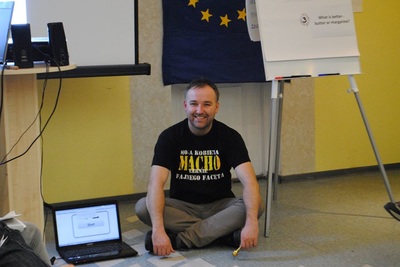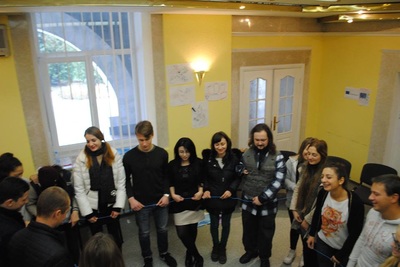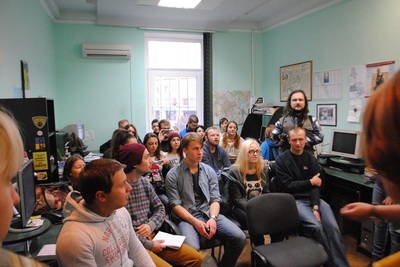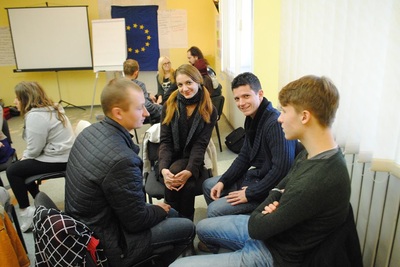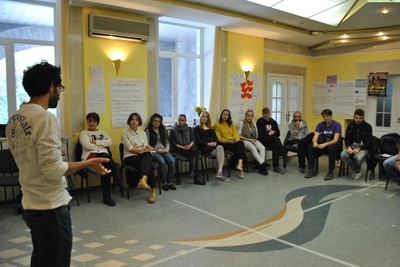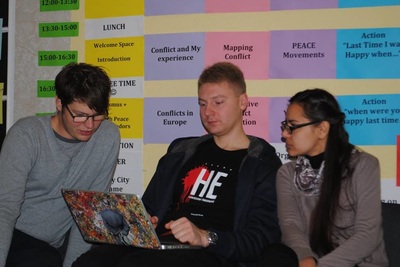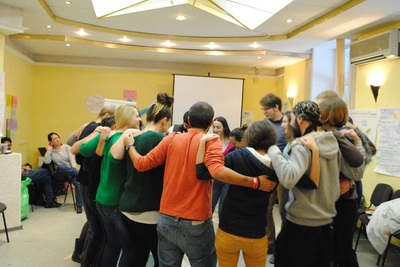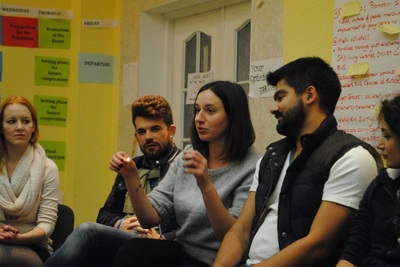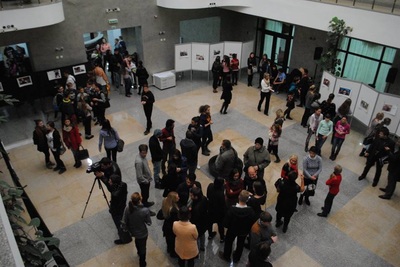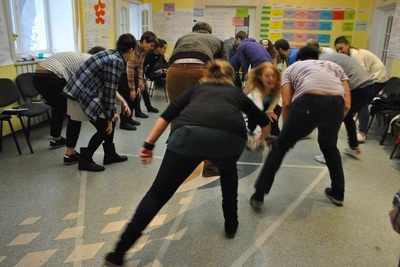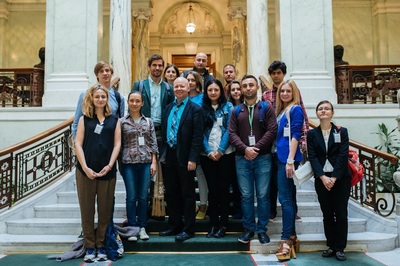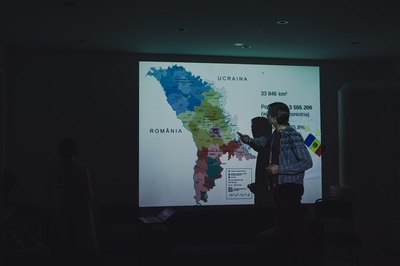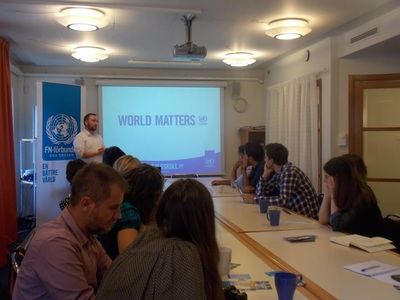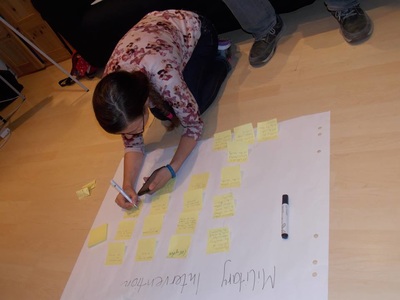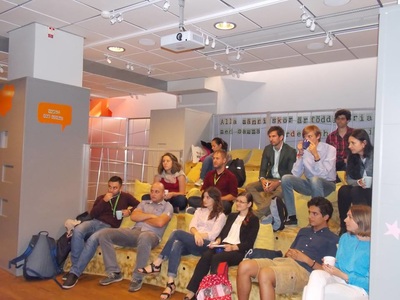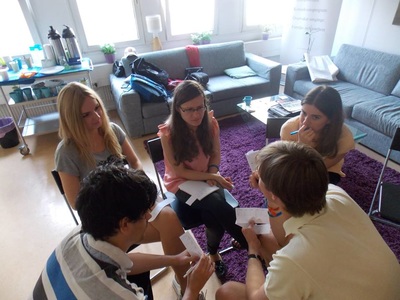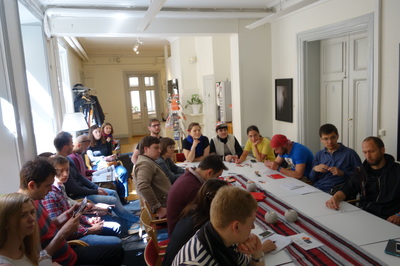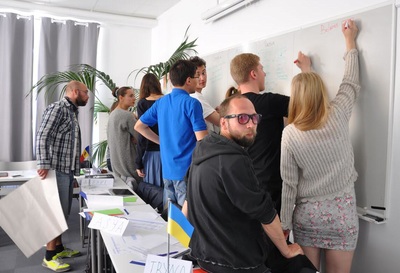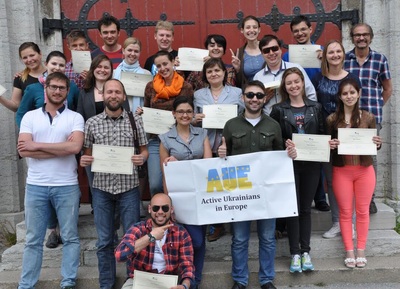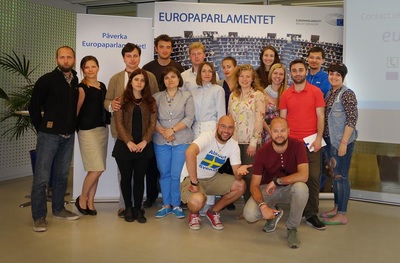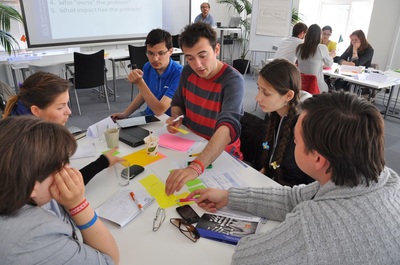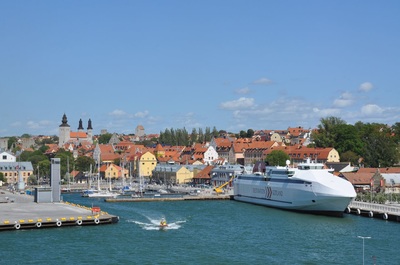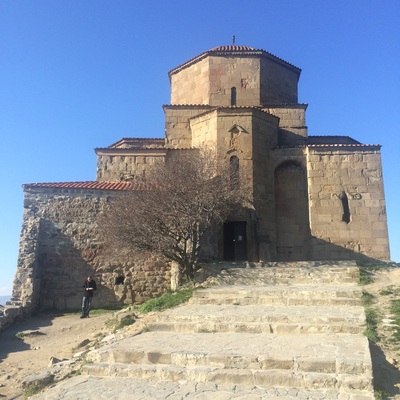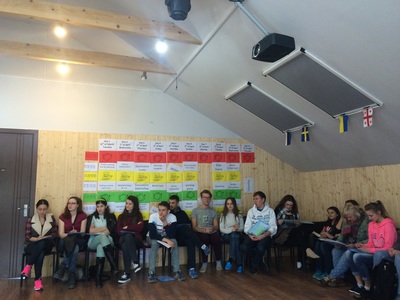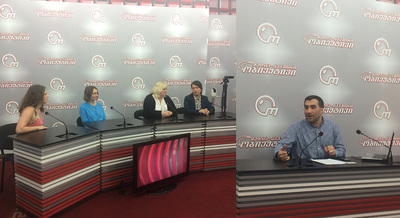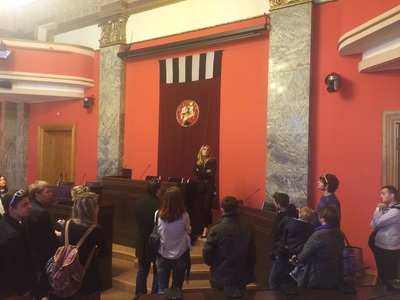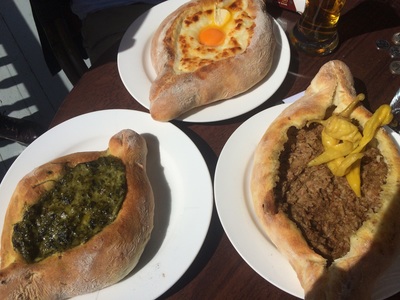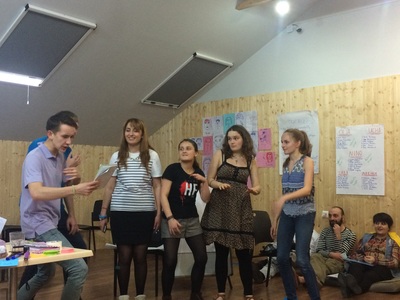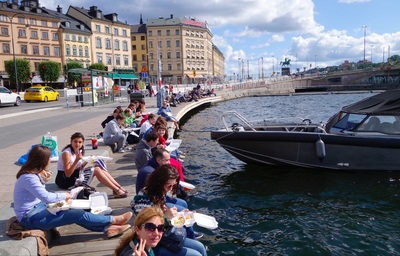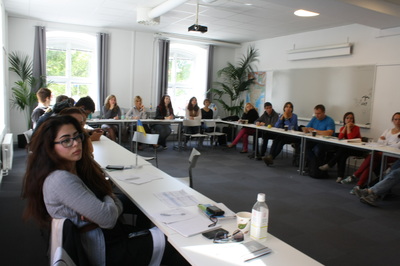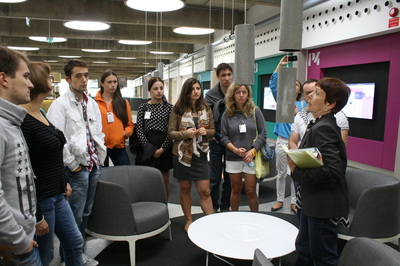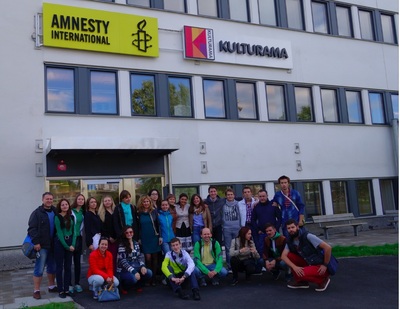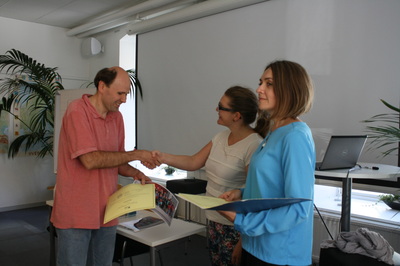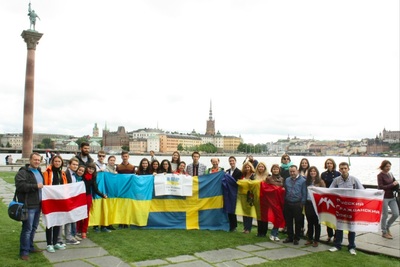Discover Iceland and Sweden
Project # NPLA-2021/10027
Three partner countries: Iceland, Lithuania and Sweden.
The main product - an online educational platform promoting Icelandic and Swedish languages and cultures, seeking to improve mutual Lithuanian-Icelandic and Lithuanian-Swedish linguistic and cultural understanding, tolerance, and respect between youth of the Nordic-Baltic region, as well as develop their online and self-guided learning and digital skills.
Main aims:
• promote Icelandic and Swedish languages and cultures, interest in them
• strengthen Icelandic and Swedish young people’s computational thinking
• provide the Nordic-Baltic youth and educational institutions a digital tool to conveniently use in distance learning
• encourage mutual Nordic-Baltic linguistic and cultural understanding.
The project is funded by Nordplus program and coordinated by Soros International House, Lithuania.
Project # NPLA-2021/10027
Three partner countries: Iceland, Lithuania and Sweden.
The main product - an online educational platform promoting Icelandic and Swedish languages and cultures, seeking to improve mutual Lithuanian-Icelandic and Lithuanian-Swedish linguistic and cultural understanding, tolerance, and respect between youth of the Nordic-Baltic region, as well as develop their online and self-guided learning and digital skills.
Main aims:
• promote Icelandic and Swedish languages and cultures, interest in them
• strengthen Icelandic and Swedish young people’s computational thinking
• provide the Nordic-Baltic youth and educational institutions a digital tool to conveniently use in distance learning
• encourage mutual Nordic-Baltic linguistic and cultural understanding.
The project is funded by Nordplus program and coordinated by Soros International House, Lithuania.
2020-2021
DIGITAL LEARNING IN ADULT EDUCATION
Project implemented by non-governmental organisations from three countries: Lithuania, Latvia and Sweden.
During the COVID-19 lockdown, many individuals and institutions encountered a number of problems that limited full-fledged distance learning. It was important to understand those limitations and challenges. Partners of the project made a research on digital learning and ICT usage in adult education to identify main problems and obstacles.
To facilitate a coherent enhancing digital learning and to exchange the adult educators experience, the local seminars-discussions will be organized in all partner countries.
Nordic-Baltic symposium will be held in Lithuania to bring together local and Nordic-Baltic issues related to digital learning and ICT usage in adult education. It will also disseminate the results of the project among the institutions involved in adult education, exchange practices and experience.
Main results:
- evaluated the effectiveness of adult digital learning during the COVID-19 lockdown situation (adult educators and learners survey + focused discussions),
- identified problems emerged that limited full-fledged distance learning,
- organized experience exchange + Nordic at Baltic symposium,
- identified main directions for implementation of digital learning and ICT in adult education as a stable base for practical measures to enhance digital learning in partner countries, taking into account local and regional context,
- developed recommendations for a coherent implementation of digital learning and ICT in adult education.
The project is funded by Nordic Council of Ministers’ Grant Programme for Nordic-Baltic Non-Governmental Organisations’ (NGO) Cooperation 2020. Project coordinator - Non-formal learning club "WE", Lithuania.
Project implemented by non-governmental organisations from three countries: Lithuania, Latvia and Sweden.
During the COVID-19 lockdown, many individuals and institutions encountered a number of problems that limited full-fledged distance learning. It was important to understand those limitations and challenges. Partners of the project made a research on digital learning and ICT usage in adult education to identify main problems and obstacles.
To facilitate a coherent enhancing digital learning and to exchange the adult educators experience, the local seminars-discussions will be organized in all partner countries.
Nordic-Baltic symposium will be held in Lithuania to bring together local and Nordic-Baltic issues related to digital learning and ICT usage in adult education. It will also disseminate the results of the project among the institutions involved in adult education, exchange practices and experience.
Main results:
- evaluated the effectiveness of adult digital learning during the COVID-19 lockdown situation (adult educators and learners survey + focused discussions),
- identified problems emerged that limited full-fledged distance learning,
- organized experience exchange + Nordic at Baltic symposium,
- identified main directions for implementation of digital learning and ICT in adult education as a stable base for practical measures to enhance digital learning in partner countries, taking into account local and regional context,
- developed recommendations for a coherent implementation of digital learning and ICT in adult education.
The project is funded by Nordic Council of Ministers’ Grant Programme for Nordic-Baltic Non-Governmental Organisations’ (NGO) Cooperation 2020. Project coordinator - Non-formal learning club "WE", Lithuania.
2019
Two part training course 'DigiView: applying video and photography skills in youth work'
Partner countries: Sweden, Albania, Montenegro, Croatia, Estonia, France, Greece, Germany, Hungary, Kosovo, Portugal, Romania and Slovakia.
The objectives of the training were:
- exchanging ideas and best practices on multimedia role in youth work using the newest photo and video-tools;
- developing digital competences by creating a professional self-branding video and a competitive video-CV;
- understanding the role of young people in their local realities in the context of active participation and inclusion;
- exploring multimedia activities as a tool for intercultural dialogue and social inclusion and adapting different types of multimedia activities to different target groups, in particular young people.
The 1st part of the course took place in Shkoder, Albania August 29 – September 7 2019.
Partner countries: Sweden, Albania, Montenegro, Croatia, Estonia, France, Greece, Germany, Hungary, Kosovo, Portugal, Romania and Slovakia.
The objectives of the training were:
- exchanging ideas and best practices on multimedia role in youth work using the newest photo and video-tools;
- developing digital competences by creating a professional self-branding video and a competitive video-CV;
- understanding the role of young people in their local realities in the context of active participation and inclusion;
- exploring multimedia activities as a tool for intercultural dialogue and social inclusion and adapting different types of multimedia activities to different target groups, in particular young people.
The 1st part of the course took place in Shkoder, Albania August 29 – September 7 2019.
During the 2d part of the training course ''DigiView: applying video and photography skills in youth work'' in Bar, Montenegro, November 2019 the participants had possibility to learn more about European citizenship and social problematic in different countries. Parallel they learnt how to produce a top-notch movie on the given theme starting from idea script writing and storyboard to filming and montaging.
You can watch the produced movie here COLOR LIFE
The project was coordinated by More Mosaic in cooperation with French NGO Mitra, CSDC Durres, Nvo Prima and co-funded by the Erasmus+ Programme of the European Union.
Youth exchange project 'More Mosaic 4 All'
Two-part youth exchange project 'More Mosaic 4 All' includes two interconnected activities where youth from different cultural backgrounds meets and experiences non-formal and informal learning in intercultural environment. Each of the project's activities corresponds to thematically interlinked sections.
Partner countries: Belarus, Czech Republic, Georgia, Greece, Italy, Slovakia, Sweden, Ukraine.
Activity 1: Active life style - June 2019 in Kobuleti, Georgia.
The first exchange in Georgia introduced participants to active life style concept. The exchange was intertwined with introduction to hiking, outdoor and sport activities.
Activity 2: Creative expression - October 2019 in Lviv, Ukraine.
The second exchange in Ukraine introduced participants to creative expression's forms – in particular drawing and theatre – and provided them with methods of delivering messages and implementing own ideas through creativity and art.
The project was implemented by More Mosaic in cooperation with Iris Group (Georgia) and NGO "Step. Forward" (Ukraine) and co-funded by the Erasmus+ Programme of the European Union.
The second exchange in Ukraine introduced participants to creative expression's forms – in particular drawing and theatre – and provided them with methods of delivering messages and implementing own ideas through creativity and art.
The project was implemented by More Mosaic in cooperation with Iris Group (Georgia) and NGO "Step. Forward" (Ukraine) and co-funded by the Erasmus+ Programme of the European Union.
Training course 'Balkan Baltic Mix': role of media and diversity in youth work.
12 – 20 March 2019, Prishtina, Kosovo.
Partner Countries: Denmark, Finland, Estonia, Kosovo, Lithuania, Latvia, Montenegro, Macedonia, Poland, Serbia, Sweden.
"Balkan Baltic Mix: role of media and diversity in youth work" was a 7-day training course for 34 youth workers.
The objectives of the project were to improve the critical thinking skills, give the possibility to discuss Baltic and Balkans realities and develop activities about media and diversity for young people. The course gave opportunity to discuss and share experience of transition periods in two European regions.
Among training course activities there were presentations of the role of media with a focus on hate speech, fake news, biased texts, discussions about the role of media in the youngster’s perception; presentations from participants (homework from national groups) how media create picture of today and tomorrow with focus on diversity in Europe. The group made a cultural trip to Prizren.
VIDEO ABOUT THE PROJECT
The project was implemented in cooperation with Esti People to People, Estonia, the local organisation Center for Economic and Social Development (CESD) supported by ILIRIA College as a special Department for non-formal education. The project was co-funded by the #Erasmus+ Programme of the European Union.
2018
Adult strategic partnership project 'Volunteers4You'
NGO ‘More Mosaic’ took part in a management meeting for an adult strategic partnership project 'Volunteers4You' (2018-2020) with partners from Germany, Estonia, Italy, France and Sweden. The kick-off meeting was held in Nice, France, on September 3-4, 2018. Check out the project website to find out more www.volunteers4you.eu
Volunteer work is closely linked with social, civic and intercultural competences, with critical thinking and with the fight against discrimination, segregation, racism and violence. Volunteer work has an economic value, increases social well-being and social prosperity. Lots of volunteers life the European values and stand for it. They are active citizens and contribute to the civil society in Europe. Democracies thrive from the engagement of their citizens, their readiness to help in society, to feel a part of it and to take over responsibility. With other words: Democracies need volunteers!
International exchange will open possibilities for new perspectives. Informative and human resources will be generated through the developed initiatives and partnerships with different stakeholders on the local, national and international levels.
The project is coordinated by VINC Learning UG, Germany and co-funded by the #Erasmus+ Programme of the European Union.
NGO ‘More Mosaic’ took part in a management meeting for an adult strategic partnership project 'Volunteers4You' (2018-2020) with partners from Germany, Estonia, Italy, France and Sweden. The kick-off meeting was held in Nice, France, on September 3-4, 2018. Check out the project website to find out more www.volunteers4you.eu
Volunteer work is closely linked with social, civic and intercultural competences, with critical thinking and with the fight against discrimination, segregation, racism and violence. Volunteer work has an economic value, increases social well-being and social prosperity. Lots of volunteers life the European values and stand for it. They are active citizens and contribute to the civil society in Europe. Democracies thrive from the engagement of their citizens, their readiness to help in society, to feel a part of it and to take over responsibility. With other words: Democracies need volunteers!
International exchange will open possibilities for new perspectives. Informative and human resources will be generated through the developed initiatives and partnerships with different stakeholders on the local, national and international levels.
The project is coordinated by VINC Learning UG, Germany and co-funded by the #Erasmus+ Programme of the European Union.
Job R-Evolve
‘Job R-Evolve’ is a two-part training course on employability and entrepreneurship for youth workers and youth leaders. Job R-Evolve is a symbolic play of words - ''revolve'' and ''evolve'' with an emphasis on a positive transformation and growth.
The project consists of two parts and aims to equip youth workers and youth leaders working directly with young people and particularly in deprived rural and urban areas with essential business and entrepreneurial competences and support them to contribute to tackle the problem of unemployment among youth through promoting local initiatives, self-employment and entrepreneurial culture.
Activity 1: training course on employability in Durres, Albania
Activity 2: training course on entrepreneurship with study visit’s elements in Sarajevo, Bosnia
‘Job R-Evolve’ is a two-part training course on employability and entrepreneurship for youth workers and youth leaders. Job R-Evolve is a symbolic play of words - ''revolve'' and ''evolve'' with an emphasis on a positive transformation and growth.
The project consists of two parts and aims to equip youth workers and youth leaders working directly with young people and particularly in deprived rural and urban areas with essential business and entrepreneurial competences and support them to contribute to tackle the problem of unemployment among youth through promoting local initiatives, self-employment and entrepreneurial culture.
Activity 1: training course on employability in Durres, Albania
Activity 2: training course on entrepreneurship with study visit’s elements in Sarajevo, Bosnia
Part 1: Training course in Albania
13 – 21 June 2018, Durres, Albania
Partner Countries: Albania, Bosnia and Herzegovina, Czech Republic, Denmark, Estonia, Greece, Italy, Latvia, Poland, Romania, Spain, Sweden
The objectives of the training course in Durres are:
13 – 21 June 2018, Durres, Albania
Partner Countries: Albania, Bosnia and Herzegovina, Czech Republic, Denmark, Estonia, Greece, Italy, Latvia, Poland, Romania, Spain, Sweden
The objectives of the training course in Durres are:
- To share the experience of youth (un)employability issues of the participating countries,
- To get skills on how to write competitive CV and motivation/cover letter,
- To get informed about international job opportunities provided by various job finding organizations / platforms,
- To design and implement workshops tackling unemployment issues for local communities,
- To inform about the opportunities Erasmus+ gives to youth as a positive input in finding jobs,
- To create network between youth workers involved in youth (un)employment issues.
The project is implemented by More Mosaic in cooperation with OPEN DOORS _albania and co-funded by the #Erasmus+ Programme of the European Union.
Part 2: Training course with study visit’s elements in Bosnia
30 July – 8 August 2018, Sarajevo, Bosnia
Participant countries: Sweden, Albania, Bosnia and Herzegovina, Czech Republic, Denmark, Estonia, Greece, Italy, Latvia, Poland, Romania and Spain
The objectives of the training course in Sarajevo are:
30 July – 8 August 2018, Sarajevo, Bosnia
Participant countries: Sweden, Albania, Bosnia and Herzegovina, Czech Republic, Denmark, Estonia, Greece, Italy, Latvia, Poland, Romania and Spain
The objectives of the training course in Sarajevo are:
- To promote and develop innovative ideas and share good practices among project partners,
- To gain experience and apply entrepreneurship through workshops and meetings with successful entrepreneurs,
- To understand the changing and dynamic nature of entrepreneurship and initiatives,
- To promote practical methods in approaching entrepreneurial education in youth field,
- To empower youth workers who will empower job seekers to become self-employed,
- To develop creativity and entrepreneurial spirit amongst project participants,
- To develop new contacts with organisations from EU countries in order to create stronger partnerships for future projects.
The project is implemented by More Mosaic in cooperation with Mladi Volonteri - Youth Volunteers and co-funded by the #Erasmus+ Programme of the European Union.
More Mosaic Everywhere for Everyone Always
Two-part youth exchange project 'More Mosaic Everywhere for Everyone Always' includes two interconnected activities where youth from different cultural backgrounds will meet and experience non-formal and informal learning in intercultural environment. Each of the project's activities corresponds to thematically interlinked sections:
The movie "More Mosaic Everywhere for Everyone Always"
Activity 1: Active life style - Youth exchange in Georgia
Activity 2: Creative expression - Youth exchange in Ukraine
The project’s general objectives are:
Two-part youth exchange project 'More Mosaic Everywhere for Everyone Always' includes two interconnected activities where youth from different cultural backgrounds will meet and experience non-formal and informal learning in intercultural environment. Each of the project's activities corresponds to thematically interlinked sections:
The movie "More Mosaic Everywhere for Everyone Always"
Activity 1: Active life style - Youth exchange in Georgia
Activity 2: Creative expression - Youth exchange in Ukraine
The project’s general objectives are:
- To improve foreign language competences;
- To promote participation in democratic life in Europe and partner countries, in the labour market, active citizenship, intercultural dialogue, social inclusion and solidarity;
- To increase motivation for taking part in non-formal education;
- To promote European citizenship’s values;
- To foster quality improvements in youth work, in particular through enhanced cooperation between organisations in the youth field;
- To enhance further cooperation; - to promote mobility and capacity building.
Part 1: Youth exchange in Georgia
3 – 12 June 2018, Kobuleti, Georgia
Partner Countries: Cyprus, Czech Republic, Georgia, Greece, Italy, Sweden, Ukraine
Aims of the youth exchange in Kobuleti:
3 – 12 June 2018, Kobuleti, Georgia
Partner Countries: Cyprus, Czech Republic, Georgia, Greece, Italy, Sweden, Ukraine
Aims of the youth exchange in Kobuleti:
- To promote healthy behaviours and active lifestyles, in particular through the promotion of the practice of outdoor activities and grassroots sports;
- To promote young people's social inclusion and well-being;
- To increase self-empowerment and self-esteem;
- To share experience and encourage new youth initiatives.
Part 2: Creative expression - Youth exchange in Ukraine
Oct 23 – Nov 3 2018, Lviv, Ukraine
Partner Countries: Cyprus, Czech Republic, Georgia, Greece, Italy, Sweden, Ukraine
The second exchange in Ukraine introduced participants to creative expression's forms – in particular drawing and theatre – and provided them with methods of delivering messages and implementing own ideas through creativity and art.
Oct 23 – Nov 3 2018, Lviv, Ukraine
Partner Countries: Cyprus, Czech Republic, Georgia, Greece, Italy, Sweden, Ukraine
The second exchange in Ukraine introduced participants to creative expression's forms – in particular drawing and theatre – and provided them with methods of delivering messages and implementing own ideas through creativity and art.
The project is implemented by More Mosaic in cooperation with Iris Group (Georgia) and Kharkiv association for active youth “Stella” (Ukraine) and co-funded by the Erasmus+ Programme of the European Union.
PRIDE: 'Promoting Diversity and Inclusive Youth Work Practices’
The Long Term Training Course PRIDE - 'Promoting Diversity and Inclusive Youth Work Practices' is intended for youth workers, youth trainers and facilitators who are ready to work on the topics of diversity, inclusion and anti-discrimination in order to activate the potential of diversity in trainings and work with young people both at national and the European levels.
The movie "PRIDE"
PRIDE is a multi-layer project that consists of three parts, with different activities:
Activity 1 - Training Course in Armenia
Activity 2 - Local Activities in Participating countries
Activity 3 - Capacity Building and Evaluation Seminar in Armenia (5th – 13th May, 2018)
The project had the following main objectives:
- To empower workers, trainers and educators to develop diversity orientation in their work with young people and build their competence in diversity management;
- To support workers in incorporation of diversity into their working environment, thus, making their work more inclusive and effective;
- To promote diversity-oriented attitudes and awareness within the European programs in the fields of Education, Training and Youth;
- To introduce key theoretical aspects, the glossary as well as the practical tools, methods and instruments to the youth workers who seek to implement the concept of diversity in their work;
- To discuss how the European Youth Work can reinforce equality and ensure that diverse groups of people get equal treatment during trainings, seminars as well as other formal and non-formal educational settings;
- To strengthen cooperation between 14 organizations based in the EU and non-EU countries in order to exchange methods and develop new projects on diversity and inclusion within the Erasmus+ programme.
Part 1: training course in Armenia
25 February – 4 March 2018, Aghveran, Armenia
Partner Countries: Armenia, Belarus, Czech Republic, Denmark, Georgia, Germany, Italy, Latvia, Macedonia, Poland, Romania, Serbia, Sweden, Turkey
Aims of the training course in Aghveran:
25 February – 4 March 2018, Aghveran, Armenia
Partner Countries: Armenia, Belarus, Czech Republic, Denmark, Georgia, Germany, Italy, Latvia, Macedonia, Poland, Romania, Serbia, Sweden, Turkey
Aims of the training course in Aghveran:
- To empower youth workers, trainers and educators to develop diversity orientation in their work with young people and build the their competence in diversity management;
- To support youth workers in incorporation of diversity into their working environment, thus, making their work more successful and inclusive;
- To promote diversity-oriented attitudes and awareness within the European programs in the fields of Education, Training and Youth;
- To introduce key theoretical aspects, the glossary as well as the practical tools, methods and instruments to the youth workers who seek to implement the concept of diversity in their work;
- To develop training and educational activities and tools on diversity and try them out in the group of participants in order to use the tools during the Local Activities back home.
Part 2: capacity building and evaluation seminar in Armenia
5 – 13 May 2018, Yerevan, Armenia
Partner Countries: Armenia, Belarus, Czech Republic, Denmark, Georgia, Germany, Italy, Latvia, Macedonia, Poland, Romania, Serbia, Sweden, Turkey
Aims of the capacity building and evaluation seminar in Yerevan:
5 – 13 May 2018, Yerevan, Armenia
Partner Countries: Armenia, Belarus, Czech Republic, Denmark, Georgia, Germany, Italy, Latvia, Macedonia, Poland, Romania, Serbia, Sweden, Turkey
Aims of the capacity building and evaluation seminar in Yerevan:
- To develop skills in planning of a training activity and mainstreaming diversity in project management stages, from planning to evaluation;
- To learn about diversity challenges and issues in the Eastern Europe and Caucasus and meet relevant stakeholders;
- To discuss how the European Youth Work can reinforce equality and ensure that diverse groups of people get equal treatment during trainings or in other educational settings.
- To evaluate the individual learning process of the participants and have a look on the process of their self-empowerment and self-efficiency in dealing with diversity and inclusion;
- To evaluate and reflect on the knowledge, skills and attitudes of the participants gained within LTTC;
- To evaluate Local Activities in Participating countries and present the project implemented through a dissemination event;
- To exchange best practices in relation to youth work and strengthen cooperation between 14 organizations based in the EU and non-EU countries;
- To exchange methods and develop new practices and projects on diversity and inclusion within the Erasmus+;
- To facilitate networking between participants and develop new projects dealing with diversity and inclusion.
Our long term training course #PRIDE – 'Promoting Diversity and Inclusive Youth Work Practices' successfully came to its' finish and here you can find an interview with PRIDE representatives about their Local Activities in the frame of the project.
Follow the link ec.europa.eu/epale/en/node/72644
The project was implemented by More Mosaic in cooperation with Armenian Progressive Youth NGO and co-funded by the Erasmus+ Programme of the European Union.
Follow the link ec.europa.eu/epale/en/node/72644
The project was implemented by More Mosaic in cooperation with Armenian Progressive Youth NGO and co-funded by the Erasmus+ Programme of the European Union.
2017
SCOPE: 'Strengthening Youth Capacity for Conflict Management and Peace-Building’ - A multi-layer project
Taking into account a wide spread of the recent extremist movements across Europe, the existing internal and international conflicts within European Union and neighboring countries as well as the ongoing refugee crisis and 'frozen' political conflicts in Eastern Europe and Caucasus, we consider it highly important to gather youth workers and activists from EU and non-EU countries to facilitate a discussion on: common unity factors, how to practice non-violent communication and to share practical tools on conflict management and transformation.
This multi-layer project consisted of four parts, with different activities:
- Preparation meeting in Tbilisi, Georgia, June
- Training Course for Youth Workers in Yerevan, Armenia, August
- Local initiatives in participating countries, September – November
- Evaluation Seminar in Belgrade, Serbia, November
Part 1: preparation meeting in Georgia
12 – 16 June 2017, Tbilisi, Georgia
Partner countries: Armenia, Estonia, Georgia, Greece, Lithuania, Macedonia, Poland, Russian Federation, Serbia, Sweden, Turkey and Ukraine.
Trainers and experts share practical and theoretical knowledge on the topics of conflict prevention and resolution. During the project, special attention will be paid to developing skills and competences of the youth workers through plenary sessions, workshops, peer learning processes, interactive exercises and other non-formal educational methods.
The objectives of the entire Capacity Building Project were the following:
- To develop awareness about personal concepts, beliefs and habitual ways to react to conflicts;
- To gain knowledge on key concepts, such as conflict management, conflict transformation, conflict resolution, inner belief systems and non-violent communication;
- To gain tools for non-violent communication and conflict transformation;
- To exchange best practices in relation to youth work and conflict, inter-religious and cultural dialogue;
- To help participants reflect on the competence needed for using different tools to develop dialogue;
- To raise awareness of risk factors under which conflicts tend to arise;
- To facilitate networking between participants and develop new projects dealing with conflict resolution and peace-building.
Part 2: training course for youth workers in Armenia
25 August – 2 September 2017, Yerevan, Armenia
Partner countries: Armenia, Estonia, Georgia, Greece, Lithuania, Macedonia, Poland, Russian Federation, Serbia, Sweden, Turkey and Ukraine.
The objectives of this training course were:
- to develop awareness about personal concepts and believes one has about conflict and habitual ways to react to the conflict;
- to raise awareness of risk factors under which conflicts tend to arise;
- to identify effective methods that help to prevent and/or transform conflict through fostering non-violent communication;
- to gain knowledge on key concepts, such as conflict management, conflict transformation, conflict resolution, inner belief systems and non-violent communication;
- to gain tools for non-violent communication and conflict transformation.
25 August – 2 September 2017, Yerevan, Armenia
Partner countries: Armenia, Estonia, Georgia, Greece, Lithuania, Macedonia, Poland, Russian Federation, Serbia, Sweden, Turkey and Ukraine.
The objectives of this training course were:
- to develop awareness about personal concepts and believes one has about conflict and habitual ways to react to the conflict;
- to raise awareness of risk factors under which conflicts tend to arise;
- to identify effective methods that help to prevent and/or transform conflict through fostering non-violent communication;
- to gain knowledge on key concepts, such as conflict management, conflict transformation, conflict resolution, inner belief systems and non-violent communication;
- to gain tools for non-violent communication and conflict transformation.
Part 3: evaluation seminar in Serbia
19 – 25 November 2017, Belgrade, Serbia
Partner countries: Armenia, Estonia, Georgia, Greece, Lithuania, Macedonia, Poland, Russian Federation, Serbia, Sweden, Turkey and Ukraine.
Objectives of the Evaluation Seminar:
- to evaluate the individual learning process of the participants and have a look on the process of their self-empowerment and self-efficiency in dealing with conflict management and peace-building;
- to evaluate and reflect on the knowledge, skills and attitudes of the participants gained within Capacity Building Project;
- to evaluate Local Activities in Participating countries and present the project implemented through a dissemination event;
- to exchange best practices in relation to youth work and conflict, inter-religious and cultural dialogue and learn about the experience in Balkan countries;
- to help participants reflect on the competence needed for using different tools to develop dialogue;
- to facilitate networking between participants and develop new projects dealing with conflict resolution and peace-building.
MOVIE – SCOPE STORIES
19 – 25 November 2017, Belgrade, Serbia
Partner countries: Armenia, Estonia, Georgia, Greece, Lithuania, Macedonia, Poland, Russian Federation, Serbia, Sweden, Turkey and Ukraine.
Objectives of the Evaluation Seminar:
- to evaluate the individual learning process of the participants and have a look on the process of their self-empowerment and self-efficiency in dealing with conflict management and peace-building;
- to evaluate and reflect on the knowledge, skills and attitudes of the participants gained within Capacity Building Project;
- to evaluate Local Activities in Participating countries and present the project implemented through a dissemination event;
- to exchange best practices in relation to youth work and conflict, inter-religious and cultural dialogue and learn about the experience in Balkan countries;
- to help participants reflect on the competence needed for using different tools to develop dialogue;
- to facilitate networking between participants and develop new projects dealing with conflict resolution and peace-building.
MOVIE – SCOPE STORIES
The project is implemented by More Mosaic in cooperation with Armenian Progressive Youth NGO and Inkluzivni Pokret and co-funded by the Erasmus+ Programme of the European Union.
'More Mosaic Everywhere for Everyone' - A multi-layer project
The idea of the project originated during two very successful youth exchanges that were conducted by More Mosaic in cooperation with Ukrainian and Moroccan partners in 2016 under the frame name of 'More Mosaic'.
Caring such experience with the variety of cultures, histories, religions, colours, symbols and vivid human communication brought new inspiration and laid a ground for an expanded continuation: a multi-layer project 'More Mosaic Everywhere for Everyone'.
The project's general aims were:
- to promote participation in democratic life in Europe and partner countries, in the labour market, active citizenship, intercultural dialogue, social inclusion and solidarity;
- to promote European citizenship’s values;
- to foster quality improvements in youth work, in particular through enhanced cooperation between organisations in the youth field;
- to promote mobility and capacity building.
Each of the project's activities corresponds to three thematically interlinked sections, which will take place in three different locations:
1. Active lifestyle – Georgia
2. Inter-cultural dialogue – Morocco
3. Creative expression – Ukraine
The idea of the project originated during two very successful youth exchanges that were conducted by More Mosaic in cooperation with Ukrainian and Moroccan partners in 2016 under the frame name of 'More Mosaic'.
Caring such experience with the variety of cultures, histories, religions, colours, symbols and vivid human communication brought new inspiration and laid a ground for an expanded continuation: a multi-layer project 'More Mosaic Everywhere for Everyone'.
The project's general aims were:
- to promote participation in democratic life in Europe and partner countries, in the labour market, active citizenship, intercultural dialogue, social inclusion and solidarity;
- to promote European citizenship’s values;
- to foster quality improvements in youth work, in particular through enhanced cooperation between organisations in the youth field;
- to promote mobility and capacity building.
Each of the project's activities corresponds to three thematically interlinked sections, which will take place in three different locations:
1. Active lifestyle – Georgia
2. Inter-cultural dialogue – Morocco
3. Creative expression – Ukraine
Part 1: youth exchange in Georgia
15 – 24 June 2017, Kobuleti, Georgia
Partner countries: Sweden, Ukraine, Georgia, Morocco, Poland, Greece and Estonia.
The youth exchange included physical activities combined with studying sessions. Participants took part in both outdoor physical activation (jogging, yoga and gymnastics but also climbing and camping) and intellectually stimulating sessions (brainstorming tasks, creative assignments).
The objectives of this youth exchange were:
- to promote healthy behaviours and active lifestyles, in particular through the promotion of the practice of outdoor activities and grassroots sports;
- to promote young people's social inclusion and well-being;
- to increase self-empowerment and self-esteem;
- to share experience and encourages new youth initiatives.
The project is implemented by More Mosaic in cooperation with Research-Intellectual Club "Dialogue of Generations" and co-funded by the Erasmus+ Programme of the European Union.
Part 2: youth exchange in Morocco
01 – 09 August 2017, Larache, Morocco
Partner countries: Estonia, Morocco, Greece, Sweden.
The youth exchange in Morocco focused on inter-cultural dialogue, encouraging young people to understand and respect other cultures, become more tolerant and celebrate diversity.
During workshops and discussions, participants found out that tolerance, multiculturalism and inclusion are important elements of the tradition of the African continent.
The objectives of this youth exchange were:
- to raise awareness and understanding of other cultures and countries;
- to encourage inter-cultural dialogue, multicultural diversity and social inclusion;
- to expand knowledge on the notions of religion, acceptance and tolerance.
- to share experience and encourages new youth initiatives.
The project is implemented by More Mosaic in cooperation with Association Train d'Avenir (Larache) and co-funded by the Erasmus+ Programme of the European Union.
Part 3: youth exchange in Ukraine
11 – 22 September 2017, Lviv, Ukraine
Partner countries: Estonia, Georgia, Greece, Poland, Sweden and Ukraine.
This exchange in Ukraine introduced participants with creative expression's forms, in particular – theatre, and provided them with methods of delivering messages and implementing own ideas through creativity and art.
The objectives of this youth exchange were:
- to learn about public speaking, storyboard techniques and performance;
- to learn how to be active citizens and how to deliver a message to the community;
- to foster social inclusion and the active participation of young people in society;
- to enhance creative expression as a tool for positive change.
11 – 22 September 2017, Lviv, Ukraine
Partner countries: Estonia, Georgia, Greece, Poland, Sweden and Ukraine.
This exchange in Ukraine introduced participants with creative expression's forms, in particular – theatre, and provided them with methods of delivering messages and implementing own ideas through creativity and art.
The objectives of this youth exchange were:
- to learn about public speaking, storyboard techniques and performance;
- to learn how to be active citizens and how to deliver a message to the community;
- to foster social inclusion and the active participation of young people in society;
- to enhance creative expression as a tool for positive change.
The project is implemented by More Mosaic in cooperation with Union Forum (Lviv) and co-funded by the Erasmus+ Programme of the European Union.
2016
Training course 'Simulation Games: Seeking Asylum'
9 – 16 October 2016, Sumy, Ukraine
Partner countries: Sweden, Ukraine, Azerbaijan, Armenia, Georgia, Croatia, Romania and Turkey.
The training course was designed to help youth leaders and youth workers, trainers and educators to learn how they can use simulation games (role play simulation games) to teach young people the issue of forced migration and refugees; to help their integration into local communities and to prevent or solve conflicts between the locals and forced migrants.
The objectives of this training were:
- to discover the challenges which appear in the communities in Europe connected with the forced migration and refugees and to look for solutions to these challenges;
- to learn about how youth can be active on the local level to help in the integration of the forced migrants;
- to learn about the role-play simulation games method (structure, specifics, usage, adaptation for the certain needs, creation of the games) and how it can be used to prevent or solve problematic issues connected with forced migration;
- to create new role play simulation activities based on the participants’ realities which will be used in future for prevention or solving local conflicts connected with forced migration.
Simulation Games: Seeking Asylum
The project is implemented by More Mosaic in cooperation with Center for European Initiatives (Sumy, Ukraine) and co-funded by the Erasmus+ Programme of the European Union.
European youth exchange project 'More Mosaic'
July 30 - August 7 2016, Larache, Morocco
Partner countries: Armenia, Georgia, Morocco, Sweden and Ukraine.
The movie 'More Mosaic'
The project’s main focus was youth with fewer opportunities and different cultural background. The projects aim was to contribute to developing of safe and empowering learning environment; to provide them with international mobility; to expand their knowledge on the notions of multiculturalism, place of religion, acceptance and tolerance.
The project’s general objectives were:
- to promote European citizenship’s values;
- to raise awareness and understanding of other cultures and countries;
- to encourage inter-cultural dialogue, multicultural diversity, tolerance and social inclusion;
- to enhance further cooperation;
- to promote mobility and capacity building.
The project was implemented in cooperation with Framtidståget (Stockholm, Sweden) and Train of Future (Larache, Morocco), co-funded by the Erasmus+ Programme of the European Union.
Training 'Where does hate come from?'
15 – 23 July 2016, Yerevan, Armenia
Partner countries: Armenia, Georgia, Sweden, Ukraine, Turkey, Italy, Lithuania, Romania, France, Serbia.
The training course ''Where does hate come from?'' aimed to enhance youth workers and leaders knowledge and understanding of hate speech’ elements, to empower them to develop creative methods to tackle hate speech among young people in their local environment.
The objectives of this training were:
- to explore the notion of hate speech and examine its main roots;
- to foster critical and creative thinking among youth workers;
- to inspire youth workers to find out innovative mechanisms and solutions in fighting hate speech, targeting strangers, immigrants and refugees;
- to introduce the method of campaign as a tool to increase the awareness on hate speech against strangers, immigrants and refugees;
- to inspire young people for implementing their own ideas in local communities;
- to build solid partnership among youth workers and encourage the implementation of similar projects on European level.
Training 'Where does hate come from?'
15 – 23 July 2016, Yerevan, Armenia
Partner countries: Armenia, Georgia, Sweden, Ukraine, Turkey, Italy, Lithuania, Romania, France, Serbia.
The training course ''Where does hate come from?'' aimed to enhance youth workers and leaders knowledge and understanding of hate speech’ elements, to empower them to develop creative methods to tackle hate speech among young people in their local environment.
The objectives of this training were:
- to explore the notion of hate speech and examine its main roots;
- to foster critical and creative thinking among youth workers;
- to inspire youth workers to find out innovative mechanisms and solutions in fighting hate speech, targeting strangers, immigrants and refugees;
- to introduce the method of campaign as a tool to increase the awareness on hate speech against strangers, immigrants and refugees;
- to inspire young people for implementing their own ideas in local communities;
- to build solid partnership among youth workers and encourage the implementation of similar projects on European level.
The project is implemented in cooperation with Armenian Progressive Youth NGO (Yerevan, Armenia) and co-funded by the Erasmus+ Programme of the European Union.
European youth exchange project 'More Mosaic'
3-17 June 2016, Sumy, Ukraine
Partner countries: Armenia, Georgia, Morocco, Poland, Sweden and Ukraine.
The projects main focus was youth with fewer opportunities and different cultural background. Its aim was to contribute to developing of safe and empowering learning environment; to provide them with international mobility; to expand their knowledge on the notions of multiculturalism, place of religion, acceptance and tolerance; to share experience and encourage new youth initiatives; to facilitate international exchange, networking and cooperation.
The project is implemented in cooperation with Center for European Initiatives (Sumy, Ukraine) and co-funded by the Erasmus+ Programme of the European Union.
’Let’s make it home’ – seminar on inclusion of IDPs/refugees in hosting communities
14-22 April 2016, Sumy, Ukraine
The seminar involved 36 representatives from 12 countries: Armenia, Belarus, Georgia, Germany, Hungary, Italy, Poland, Spain, Sweden, UK, Ukraine, Turkey working with IDPs and refugees in their communities.
The aim of the seminar was to empower youth and NGO workers with tools and practices in working on inclusion and humanitarian support of IDPs and refugees .
Main objectives of the seminar were:
- to share best practices between the NGOs and youth workers for the work with IDPs and refugees in hosting communities;
- to point out possible issues which could arise in the local communities experiencing the growing amount of IDPs and refugees, and elaborate possible measures to deal with them;
- to compare the legal instruments existing in the countries of the participants concerning the status and support of the IDPs and refugees;
- to develop suggestions for local authorities for the possible measures to prevent possible conflicts in local communities;
- to develop follow-up initiatives for the support of IDPs and refugees in the communities of participants.
Let's make it home_press-release
Recommendations for Integration of IDPs and Refugees in HCs
The project is implemented in cooperation with Center for European Initiatives (Sumy, Ukraine) and co-funded by the Erasmus+ Programme of the European Union.
Training ‘Unity in diversity? From challenges to opportunities’
30 March-7 April 2016, Yerevan, Armenia
Partner countries: Armenia, Denmark, Georgia, Italy, Moldova, Poland, Sweden, Turkey, Ukraine
The training course aimed to empower youth workers to use intercultural dialogue as a tool in combating intolerance towards other cultures, religions and nationalities, fostering mutual understanding and creating effective integration mechanisms for a more inclusive Europe.
Main objectives of the course were:
- to promote European citizenship’s values;
- to improve the level of competence and knowledge in the field of youth work, active citizenship and participation;
- to raise awareness and understanding of other cultures and countries;
- to encourage inter-cultural dialogue, multicultural diversity, social inclusion and cater for the needs of disadvantaged groups;
- to foster new developments in the work of the participating organizations;
- to enhance further cooperation;
- to promote mobility and capacity building.
The project is implemented in cooperation with Armenian Progressive Youth NGO (Yerevan, Armenia) and co-funded by the Erasmus+ Programme of the European Union.
2015
WoMidan Declaration
2 December 2015, Stockholm, Sweden
We, the participants at the WoMidan seminar, come together from Tunisia, Egypt, Syria, Yemen, Palestine, Ukraine, France, Italy, Greece, Sweden, and other European countries as young activists for women’s rights and empowerment. We are women and men from different backgrounds, religions, professions, and with diverging political views, but we all share the belief that the empowerment of women is a precondition for sustainable change and progress.
While we come from diverse contexts, our societies face serious challenges in regards to gender equality and equal political, economic and social participation and opportunities. Recent experiences in the Midans (“Squares”), of our cities have shown that women, when they participate and speak out, are particularly subject to physical, sexual and psychological violence; to disempowering stereotypes; to hate speech and other forms of abuse. We have come together to identify priorities and actions for women’s activism, among which:
Establishing a secure environment for women to be engaged in spurring social and political change. It is imperative for civil society, media and in particular governments to take action to ensure that women are safe when they raise their voices or exercise their political rights. Governments should be put under pressure to ensure accountability for any use of violence or threats of violence targeted against women by the police, military, other agents of the state, by armed groups and by individuals. Civil society and international community should constantly monitor and report violence against women to build pressure for concerted action.
Education – formal and nonformal - is a crucial vector for changing attitudes and gender misperceptions in order to provide all with skills, confidence and opportunities to be fully engaged in public life.
Media practitioners have a particularly important responsibility in combatting gender stereotypes in both language and images, and ensuring a plural and diverse public sphere.
Gender equality and reducing gender gaps are in the interests of everyone. The issues of work-life balance, different career choices and sexual freedom are ever more important issues of our times for both men and women.
Civil society organisations, social movements and individual activists have a responsibility to come together - in and beyond the Midan - to share experiences, build solidarity, organize themselves politically and work together to ensure an empowering environment for women.
The Midan gave birth to many movements that have already achieved a deep shift in attitudes towards greater equality for women. This legacy must be built upon even in periods of political upheaval, war or oppression.
We call out to women’s activists, both men and women, everywhere to join networks and speak up and out with confidence to promote women’s rights and equality. Our work and participation is essential for social change, and that places us in a position of strength.
Finally, we would like to dedicate this declaration to all the women activists who lost their lives, are in detention or are suffering whilst fighting in the Midan. Your voices have been heard, and we are dedicated to amplifying them.
WoMidan (WoMen of the Square) is a regional project that offers a transnational dialogue and action platform for young activists in Europe and MENA for empowering women activism for change. From 29 November to 2 December, the first WoMidan seminar was held in Stockholm, bringing together more than 30 young activists and civil society members from Egypt, Tunisia, Syria, Italy, France, Greece, Ukraine, Sweden and other European countries.
Watch the video: https://vimeo.com/147828584
2 December 2015, Stockholm, Sweden
We, the participants at the WoMidan seminar, come together from Tunisia, Egypt, Syria, Yemen, Palestine, Ukraine, France, Italy, Greece, Sweden, and other European countries as young activists for women’s rights and empowerment. We are women and men from different backgrounds, religions, professions, and with diverging political views, but we all share the belief that the empowerment of women is a precondition for sustainable change and progress.
While we come from diverse contexts, our societies face serious challenges in regards to gender equality and equal political, economic and social participation and opportunities. Recent experiences in the Midans (“Squares”), of our cities have shown that women, when they participate and speak out, are particularly subject to physical, sexual and psychological violence; to disempowering stereotypes; to hate speech and other forms of abuse. We have come together to identify priorities and actions for women’s activism, among which:
Establishing a secure environment for women to be engaged in spurring social and political change. It is imperative for civil society, media and in particular governments to take action to ensure that women are safe when they raise their voices or exercise their political rights. Governments should be put under pressure to ensure accountability for any use of violence or threats of violence targeted against women by the police, military, other agents of the state, by armed groups and by individuals. Civil society and international community should constantly monitor and report violence against women to build pressure for concerted action.
Education – formal and nonformal - is a crucial vector for changing attitudes and gender misperceptions in order to provide all with skills, confidence and opportunities to be fully engaged in public life.
Media practitioners have a particularly important responsibility in combatting gender stereotypes in both language and images, and ensuring a plural and diverse public sphere.
Gender equality and reducing gender gaps are in the interests of everyone. The issues of work-life balance, different career choices and sexual freedom are ever more important issues of our times for both men and women.
Civil society organisations, social movements and individual activists have a responsibility to come together - in and beyond the Midan - to share experiences, build solidarity, organize themselves politically and work together to ensure an empowering environment for women.
The Midan gave birth to many movements that have already achieved a deep shift in attitudes towards greater equality for women. This legacy must be built upon even in periods of political upheaval, war or oppression.
We call out to women’s activists, both men and women, everywhere to join networks and speak up and out with confidence to promote women’s rights and equality. Our work and participation is essential for social change, and that places us in a position of strength.
Finally, we would like to dedicate this declaration to all the women activists who lost their lives, are in detention or are suffering whilst fighting in the Midan. Your voices have been heard, and we are dedicated to amplifying them.
WoMidan (WoMen of the Square) is a regional project that offers a transnational dialogue and action platform for young activists in Europe and MENA for empowering women activism for change. From 29 November to 2 December, the first WoMidan seminar was held in Stockholm, bringing together more than 30 young activists and civil society members from Egypt, Tunisia, Syria, Italy, France, Greece, Ukraine, Sweden and other European countries.
Watch the video: https://vimeo.com/147828584
The project is supported by Erasmus+, European Year of Development and the National Museum of World Cultures. Fryshuset is organizing this seminar in partnership with Agora for Arts and Culture (Egypt), COSPE (Italy), Sawty (Tunisia), European Alternatives (France), More Mosaic (Sweden) and Educatio (Ukraine).
Training 'Collaborative Media Literacy'
1-12 November 2015, Sumy, Ukraine
Partner countries: Belarus, Denmark, Georgia, Moldova, Romania, Poland, Sweden, Ukraine
The project 'Collaborative Media Literacy' addressed media literacy topics and empower the participants with knowledge and skills of how to critically assess media as well as actively produce their own content. The project prepared the participants to partake in debates on pressing topics relevant to themselves as well as responding to political propaganda or mal-governance.
In short: the participants were enabled to use relevant medias to make their own or their community voice heard.
The project understood ‘media literacy’ as a skill relative to both reception and production of medias. It included the individual's potential of experiencing, understanding, evaluating and acting relative to his own life, to cultural and social life, and relative to his participation in the development of democratic societies and institutions.
The project is implemented in cooperation with Center for European Initiatives (Sumy, Ukraine) and co-funded by the Erasmus+ Programme of the European Union.
Training 'Conflict Resolution in Practice'
15-23 October 2015, Sumy, Ukraine
Partner countries: Belarus, Czech Republic, Denmark, Georgia, Moldova, Spain, Sweden.
The training course “Conflict Resolution in Practice” promoted peaceful conflict resolution through engagement in an international dialogue.
By bringing together youth leaders from different countries and cultures, we aimed to increase their understanding of concept of peace and non-violence, awareness of conflict, and help them develop paths towards resolution. The youth leaders represented their countries and communities, and hopefully they returned to those communities, bringing with them and furthering the acquired understanding of peace and conflict resolution.
Center for European Initiatives served as the Hosting organisation within the project. Center for European Initiatives — is public nonprofit organisation, created on the principles of voluntarily participation, human rights, freedom of speech, common interests, self-government and equality of rights for its members, as well as for the protection of our legal interests, rights, and freedoms.
To check information about the hosting organisation, please, visit the web-site and facebook page.
The project is implemented in cooperation with Center for European Initiatives (Sumy, Ukraine) and co-funded by the Erasmus+ Programme of the European Union.
Training 'Peace Bridge'
August 2015, Stockholm
Partner countries: Georgia, Hungary, Moldova, Sweden, Ukraine.
Taking into account difficult socio-political situation with increased violent conflicts in the Eastern Europe region, it is of utmost importance to develop peaceful mechanisms of solving conflicts and its ramifications on a local, national and international levels.
Youth policy is often overlooked and needs special focus as the mentioned above situation unfortunately significantly expands youth-at-risk segment. Taking on revenge, developing hatred behaviour, feeling frustration and impotence are some of the consequences of violent conflicts and worsening of social conditions.
However, youth, often dramatically affected, represents a powerful critical mass and a favourable environment for positive changes and a democratic development.
Youth inclusion, active citizenship and participation, inter-cultural dialogue and tolerance, post-war recovery and rehabilitation were important elements of the project – training for youth workers and youth leaders ‘Peace Bridge’ as youth, once empowered and ‘armed’ with knowledge, would not only be affected by the challenges their countries are facing, but would also have potential to be active change makers.
The participants took part in the workshops by Framtidståget and Fryshuset and had study visits to the Swedish Parliament (Riksdagen), UN-representation Sweden, Amnesty International, Forum för Levande Historia. The program was intertwined with team building activities, cultural evenings and cultural program that included sightseeing and museum visits.
Watch the movie "Peace Bridge"
The project was implemented in cooperation with Fryshuset and Framtidståget (Sweden) and co-funded by the Erasmus+ Programme of the European Union.
Training 'The Fundamentals of a Democratic Society'
June 2015, Stockholm/Visby
Partner countries: Belarus, Belgium, Denmark, Georgia, Moldova, Russia, Sweden, Ukraine.
A two week training was designed to reveal a Swedish dimension of democracy for the young leaders and activists from the Eastern Partnership countries, initiate a dialogue about democracy and create a platform for the future collaboration.
Program:
- Study visits to Swedish Parliament, European Commission’s Representation Office, Swedish Institute, Amnesty International, Civil Rights Defenders, Östgruppen, Framtidståget and Swedish Radio.
- Training on democracy fundamentals, Visby.
The project was implemented in cooperation with the Swedish International Centre for Local Democracy-ICLD (Visby) and co-funded by the Erasmus+ Programme of the European Union.
International youth exchange project 'Talk Democracy, Walk Democracy'
April 2015, Rustavi, Georgia.
Partner countries: Croatia, Estonia, Georgia, Spain, Sweden, Ukraine.
The aim of the project was to raise awareness about democratic values among young people and empower them towards active citizenship through exploring the symbols and tools of democracy in different countries. The program consisted of training, open discussions and study visits. The participants met the representatives of Georgian youth organisations, visited the Parliament, Ministry of Sport and the Youth Affairs of Georgia, The Supreme Court and The National Children and Youth center in Tbilisi. Group leaders were invited to a live talk-show at Media Union 'Project'.
The project was implemented in cooperation with Institute for Democratic Changes-IDC (Tbilisi) and co-funded by the Erasmus+ Programme of the European Union.
Training 'The Fundamentals of a Democratic Society'
August 2014, Stockholm/Visby
Partner countries: Belarus, Denmark, Georgia, Moldova, the Netherlands, Poland, Russia, Sweden, Ukraine.
A two week training was designed to reveal a Swedish dimension of democracy for the young leaders and activists from The Eastern Partnership countries, initiate a dialogue about democracy and to create a platform for the future collaboration.
Program:
- Study visits, Stockholm (Stockholm municipality, European Commission, Swedish Institute, the National Environmental Agency, Amnesty International, Swedish Radio, Living History Forum, National Council of Swedish Youth organizations LSU, youth center Fryshuset).
- Training on democracy fundamentals, Visby.
The project was implemented in cooperation with the Swedish International Centre for Local Democracy-ICLD (Visby) and co-funded by the Erasmus+ Programme of the European Union.
